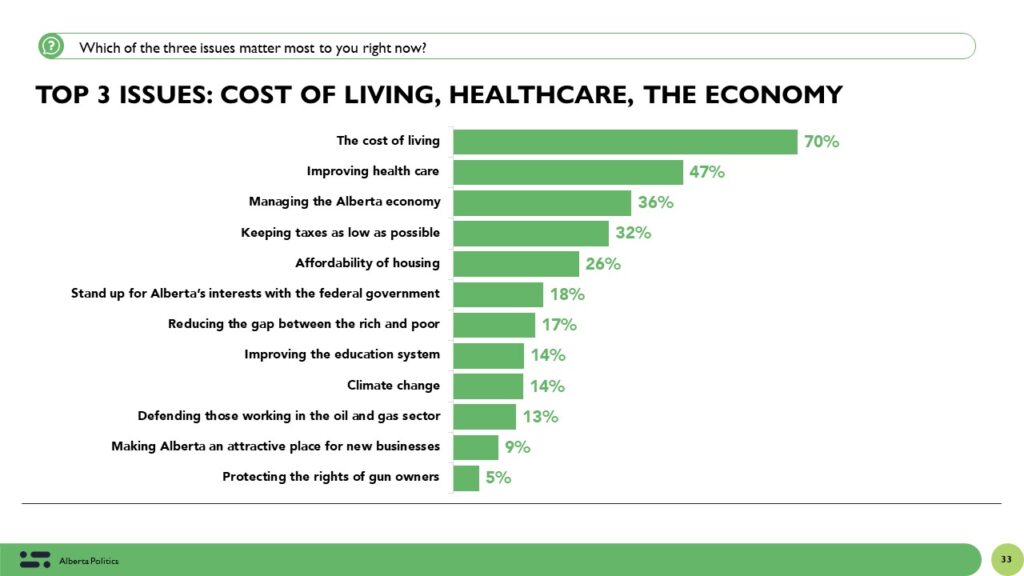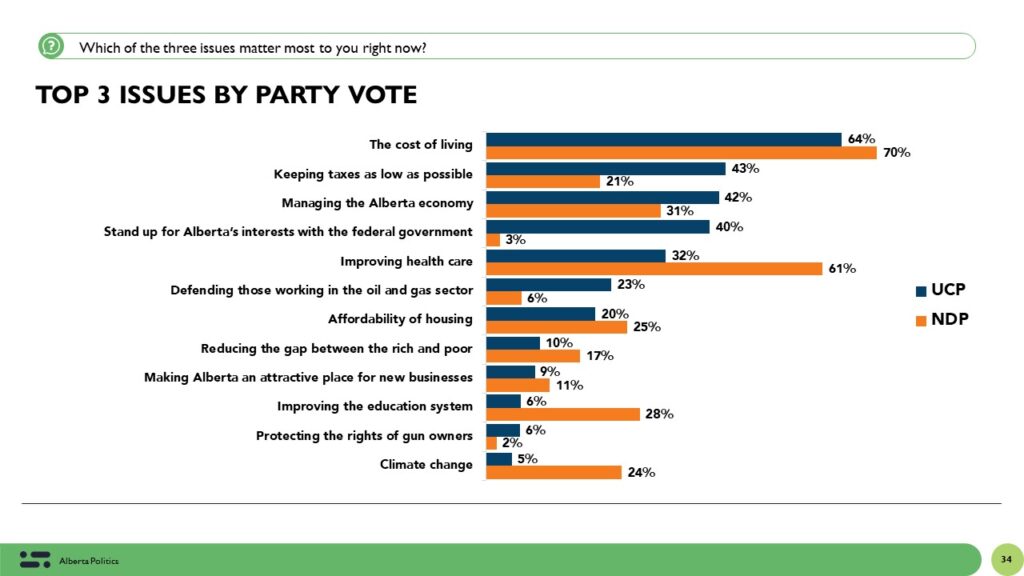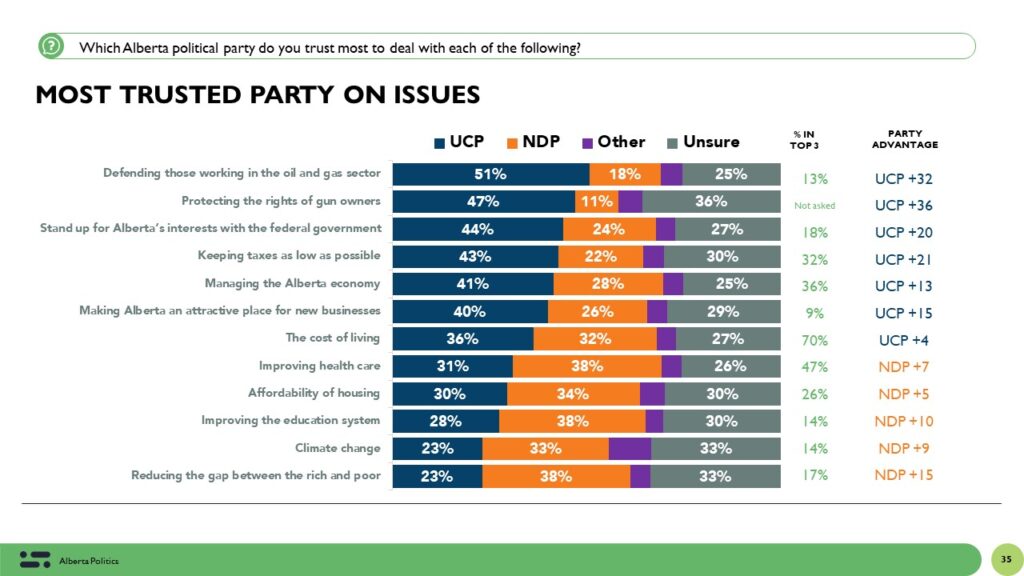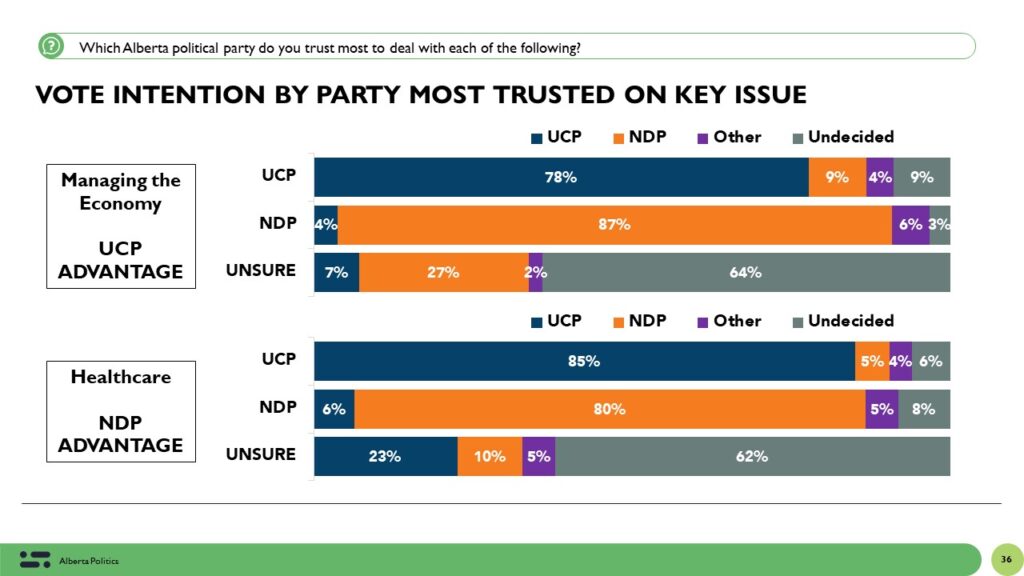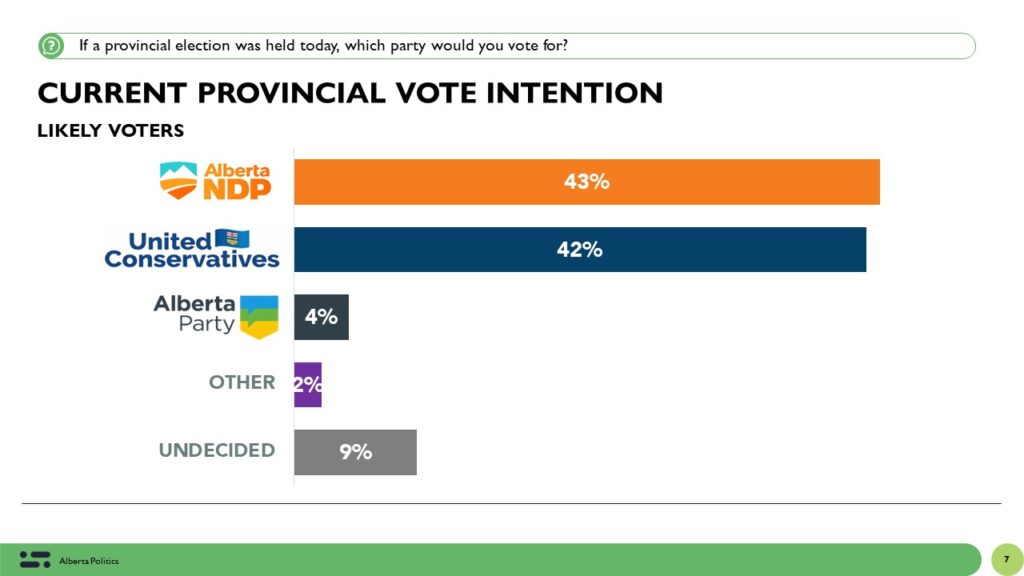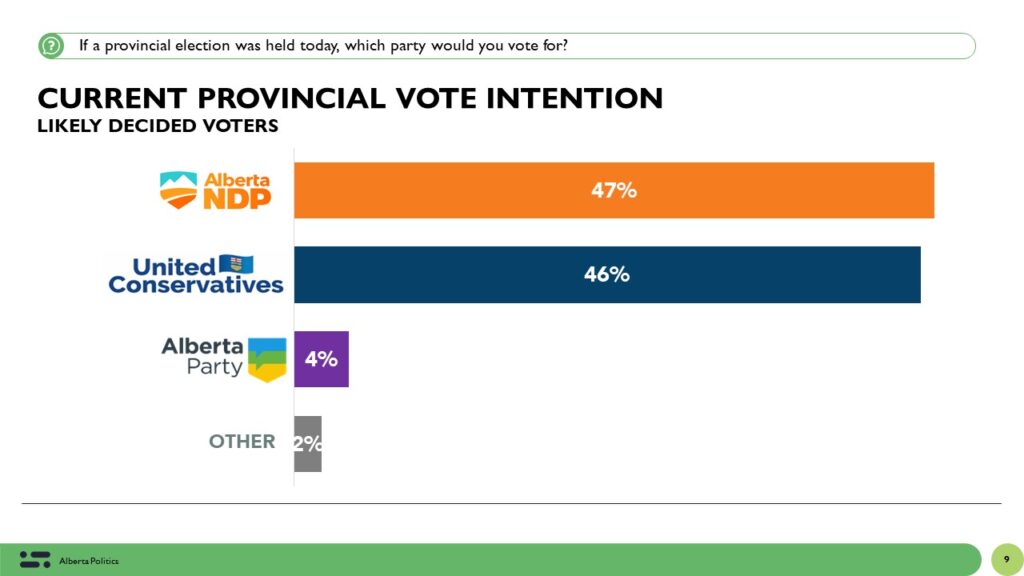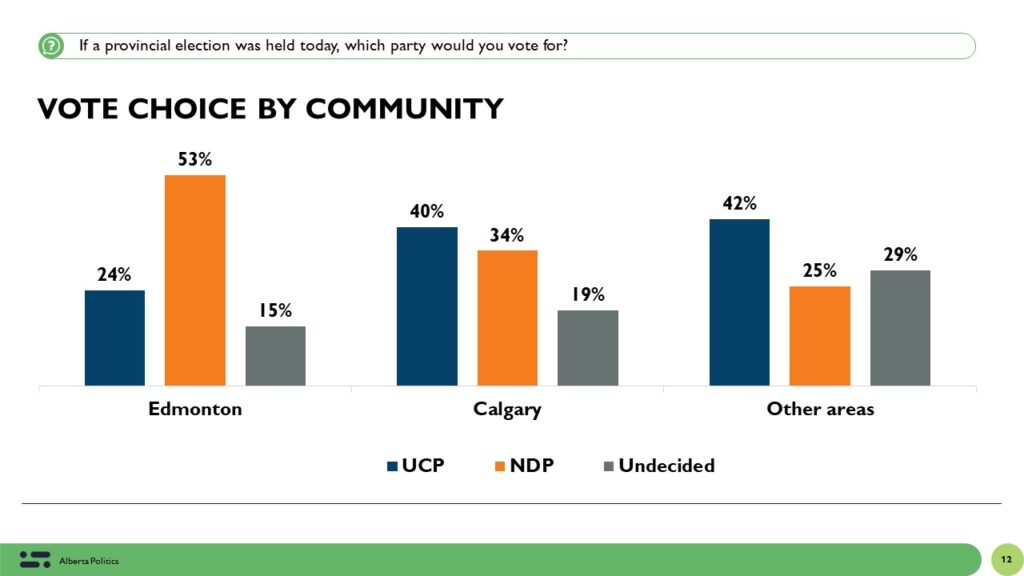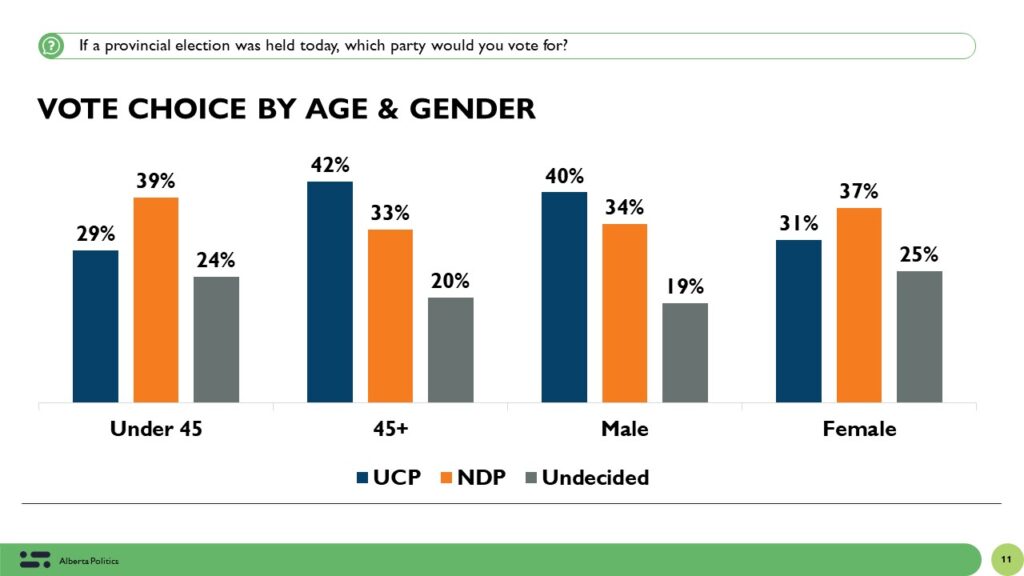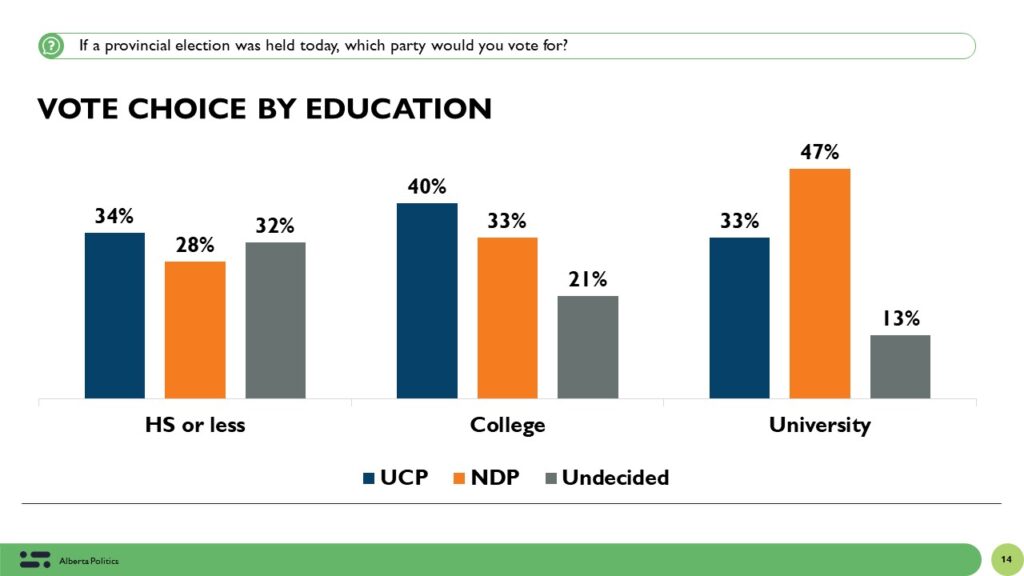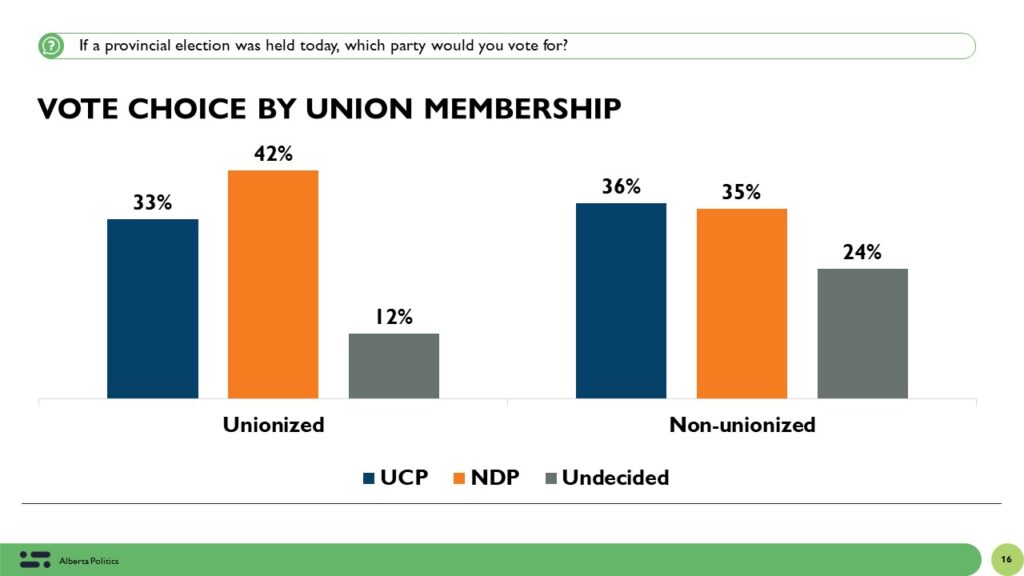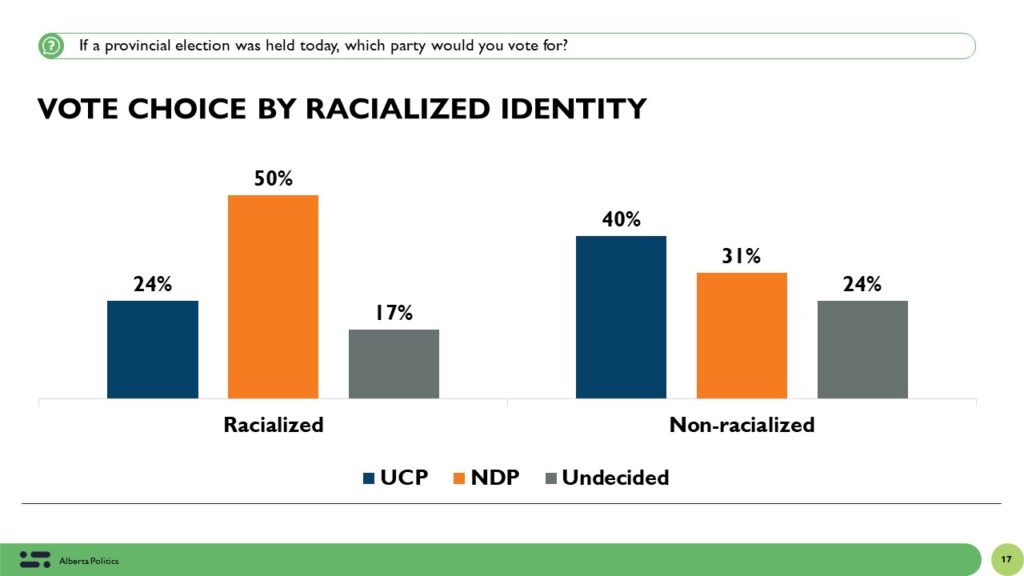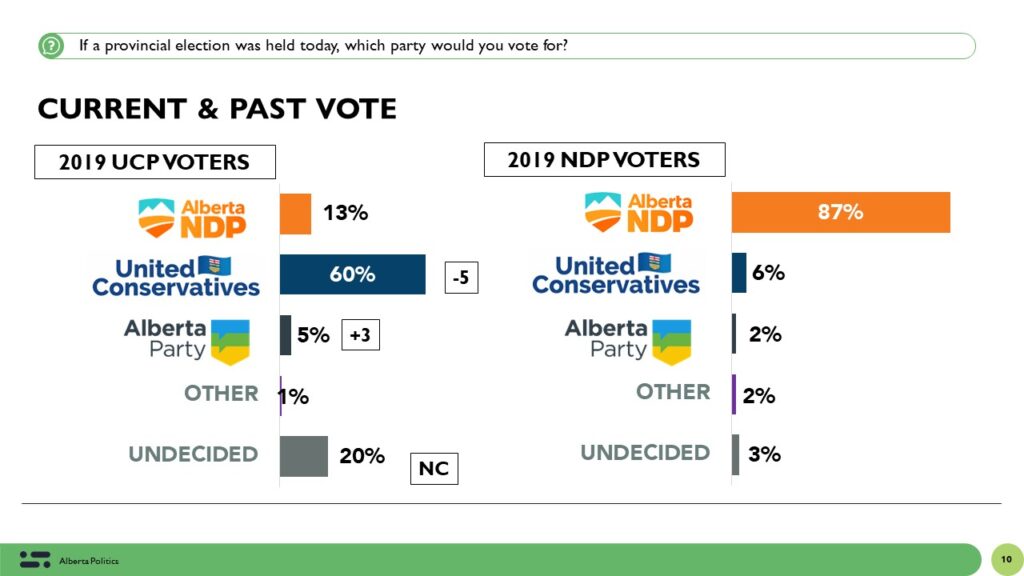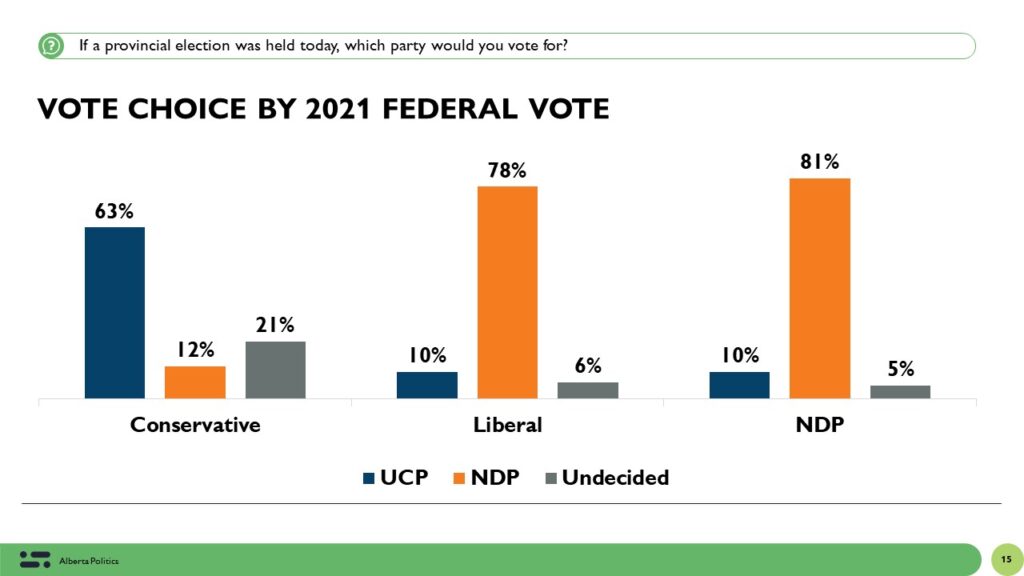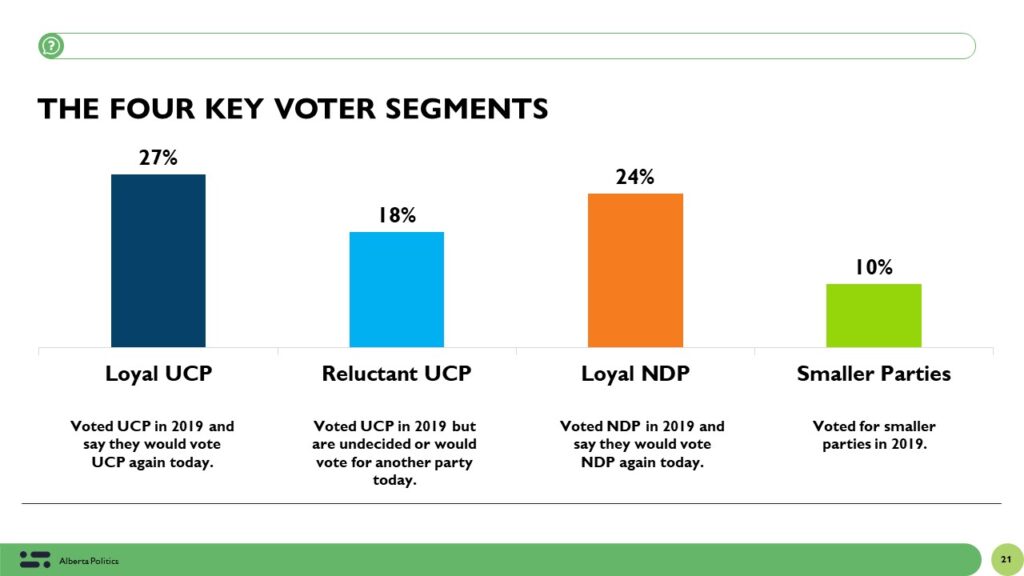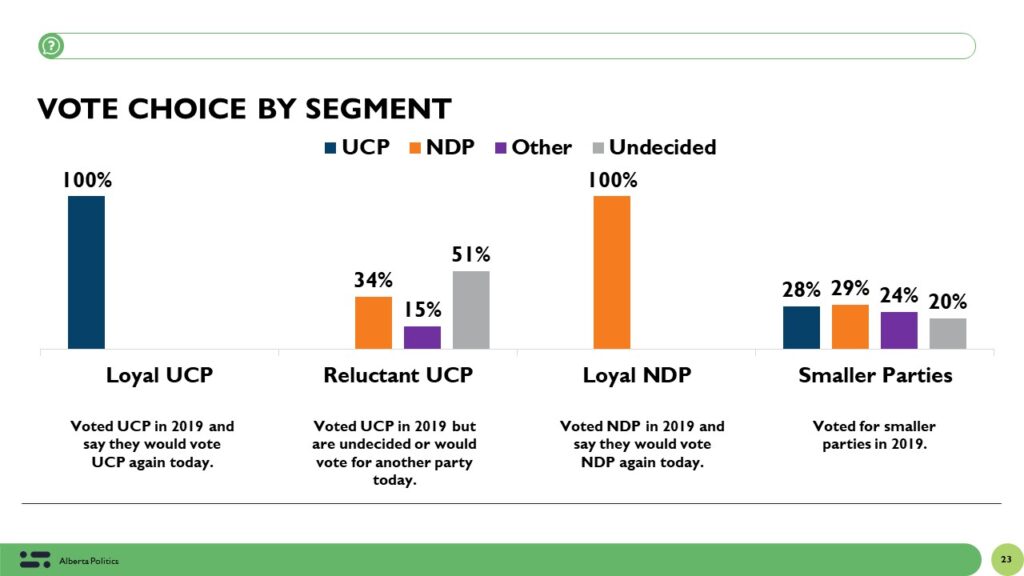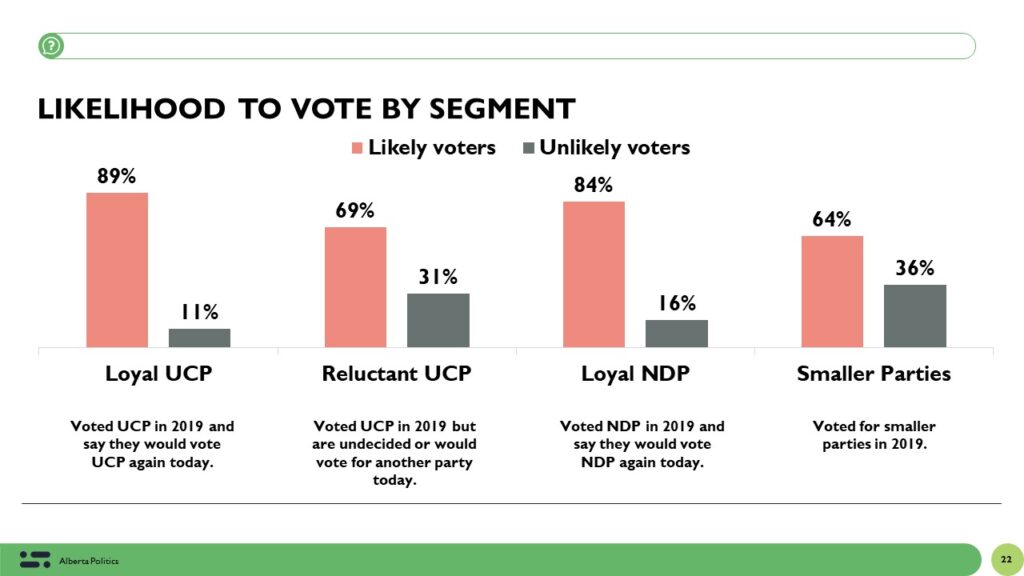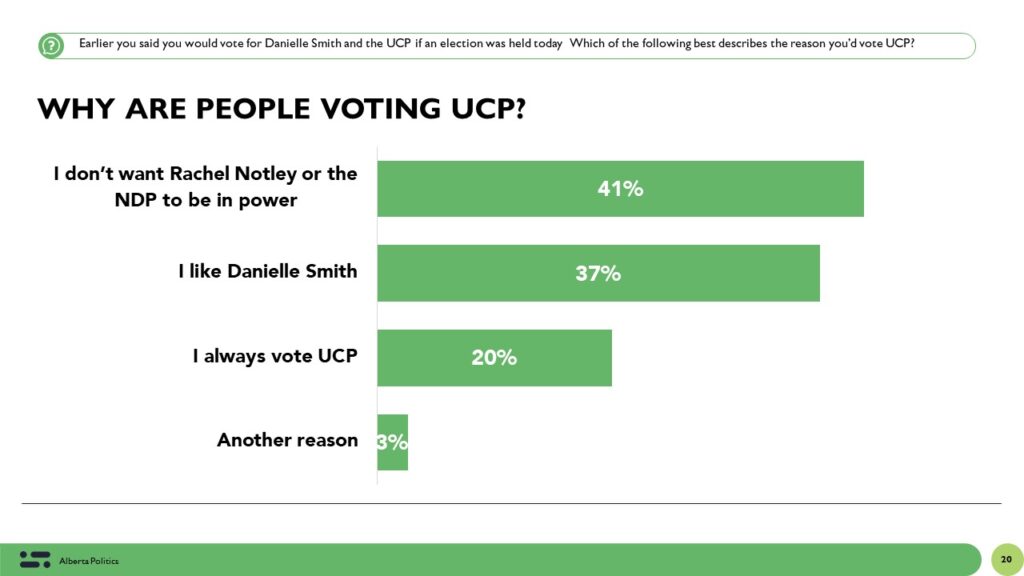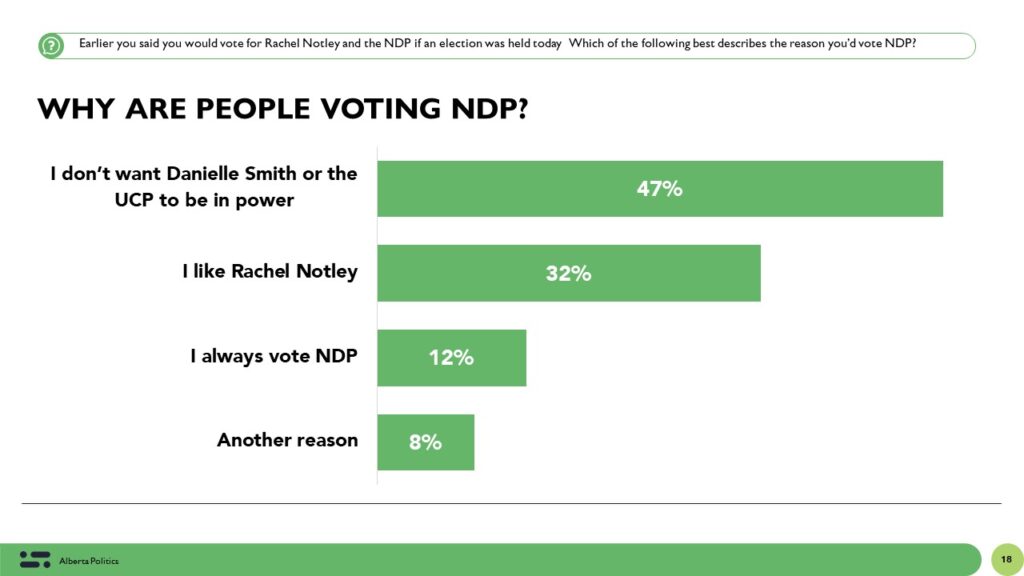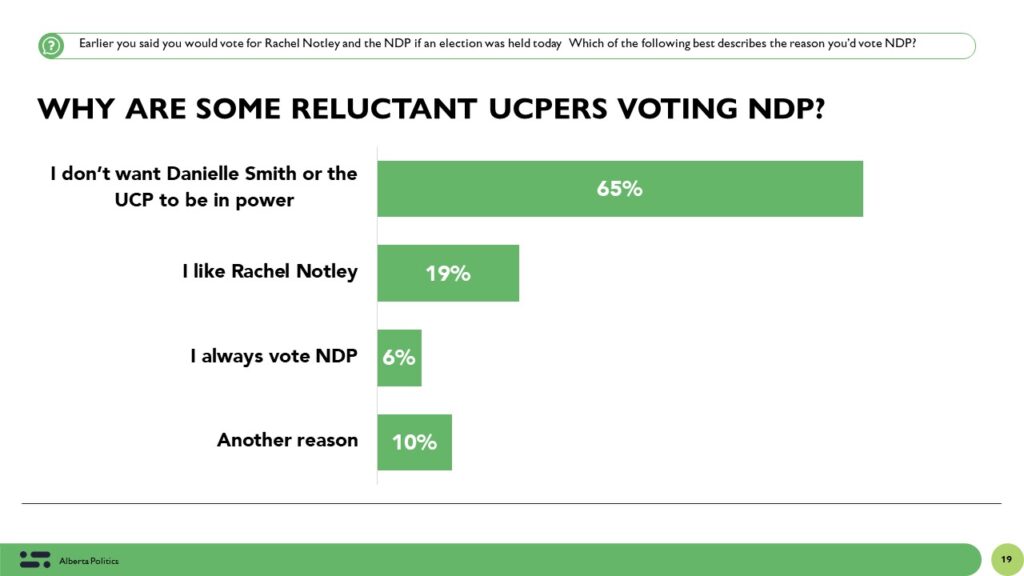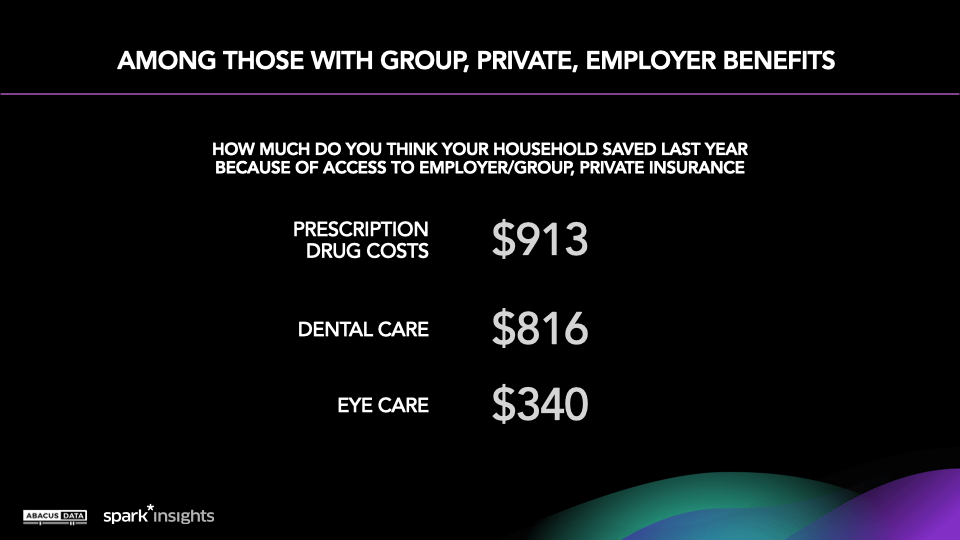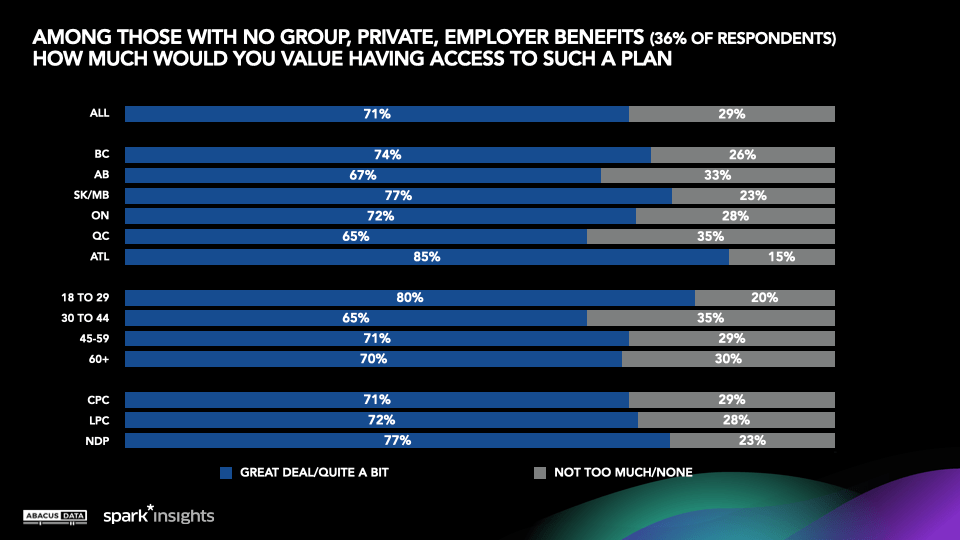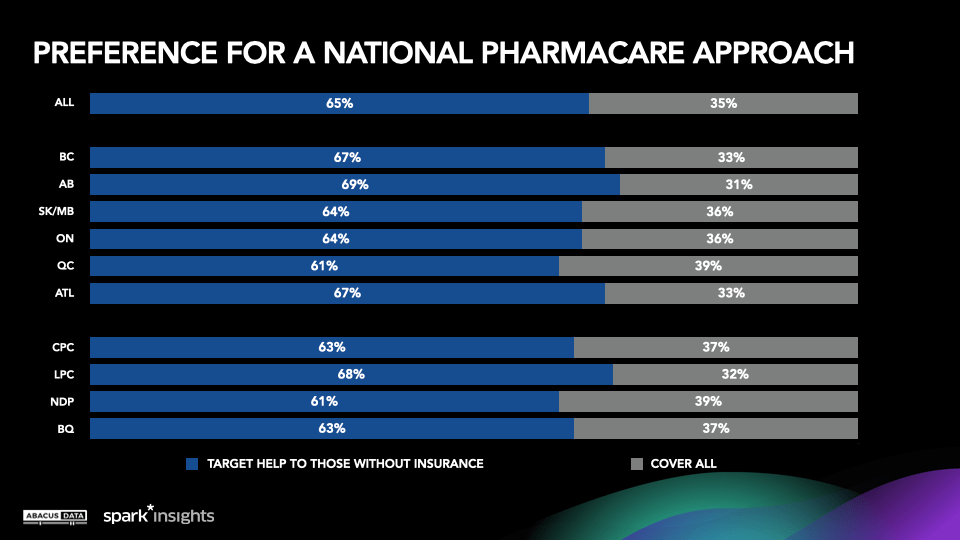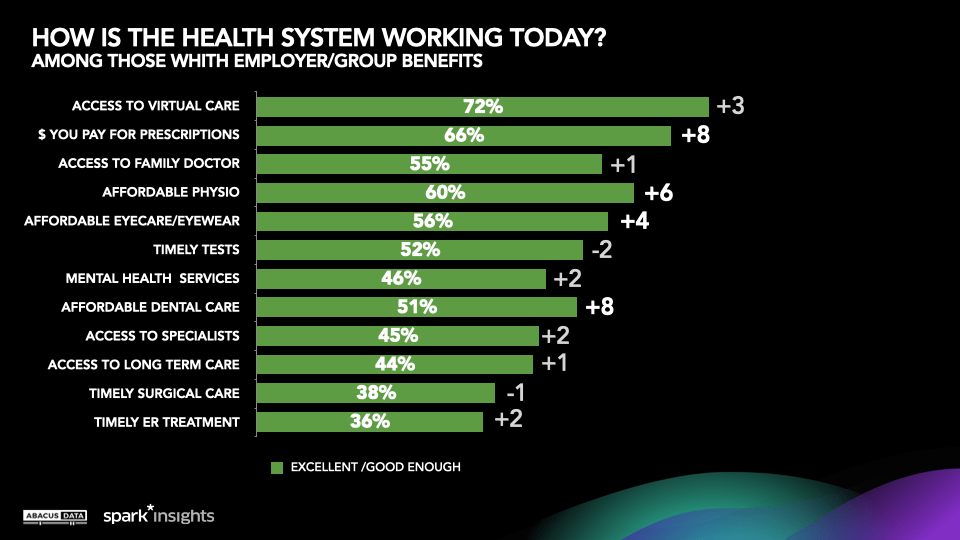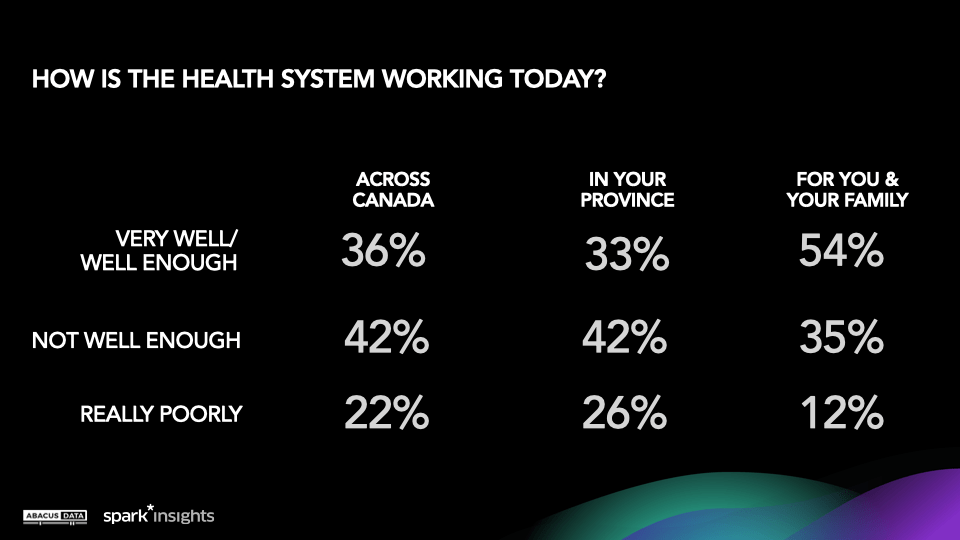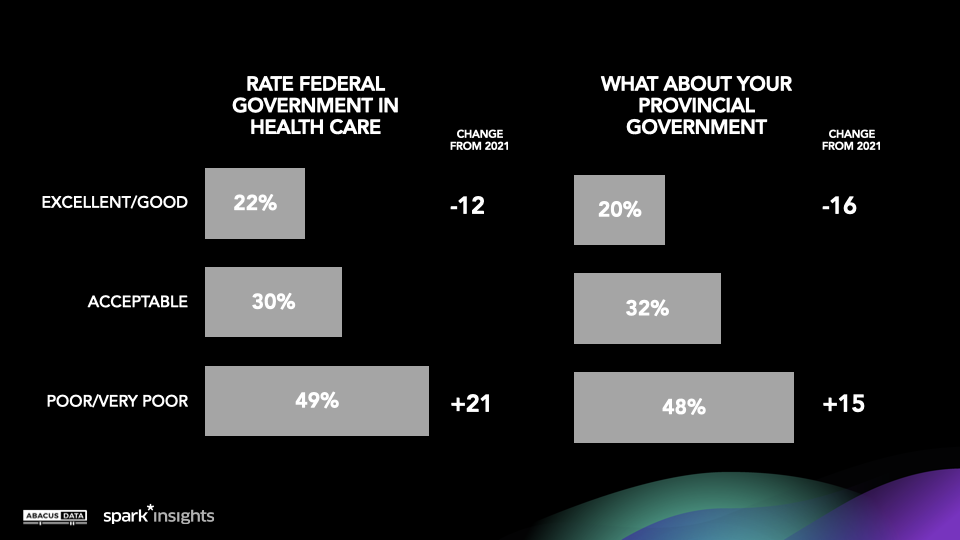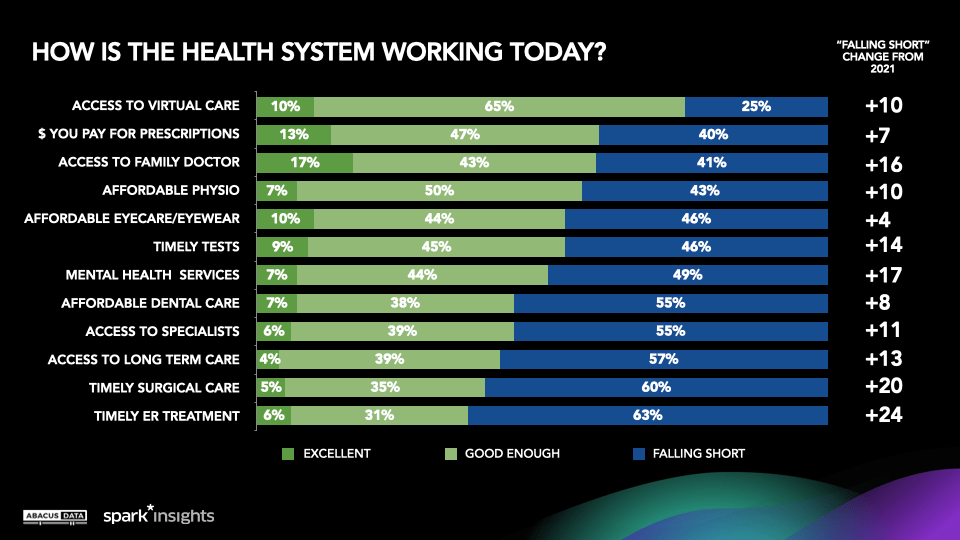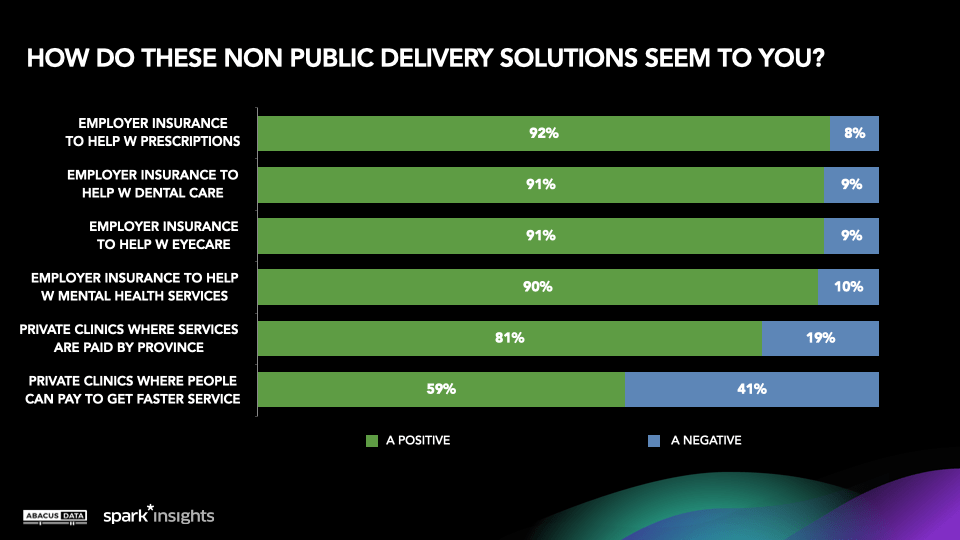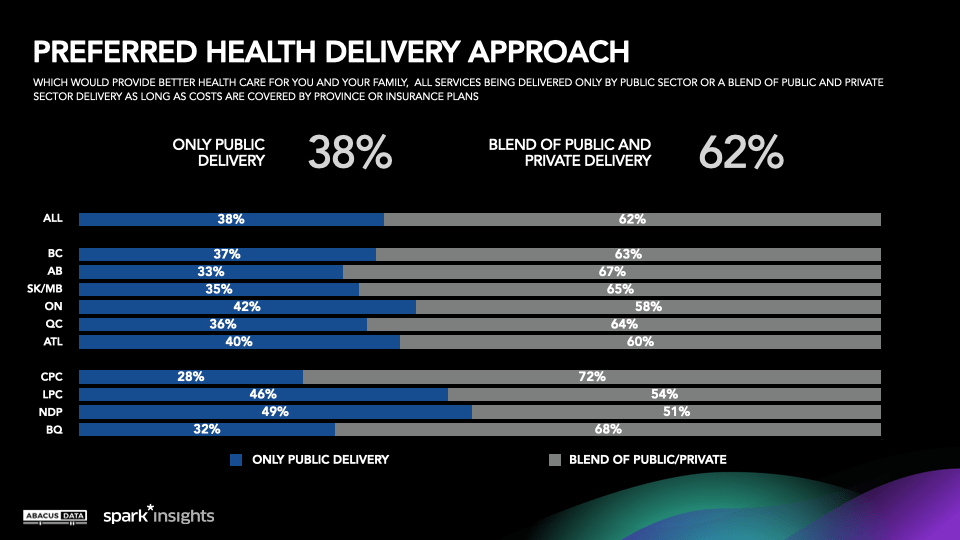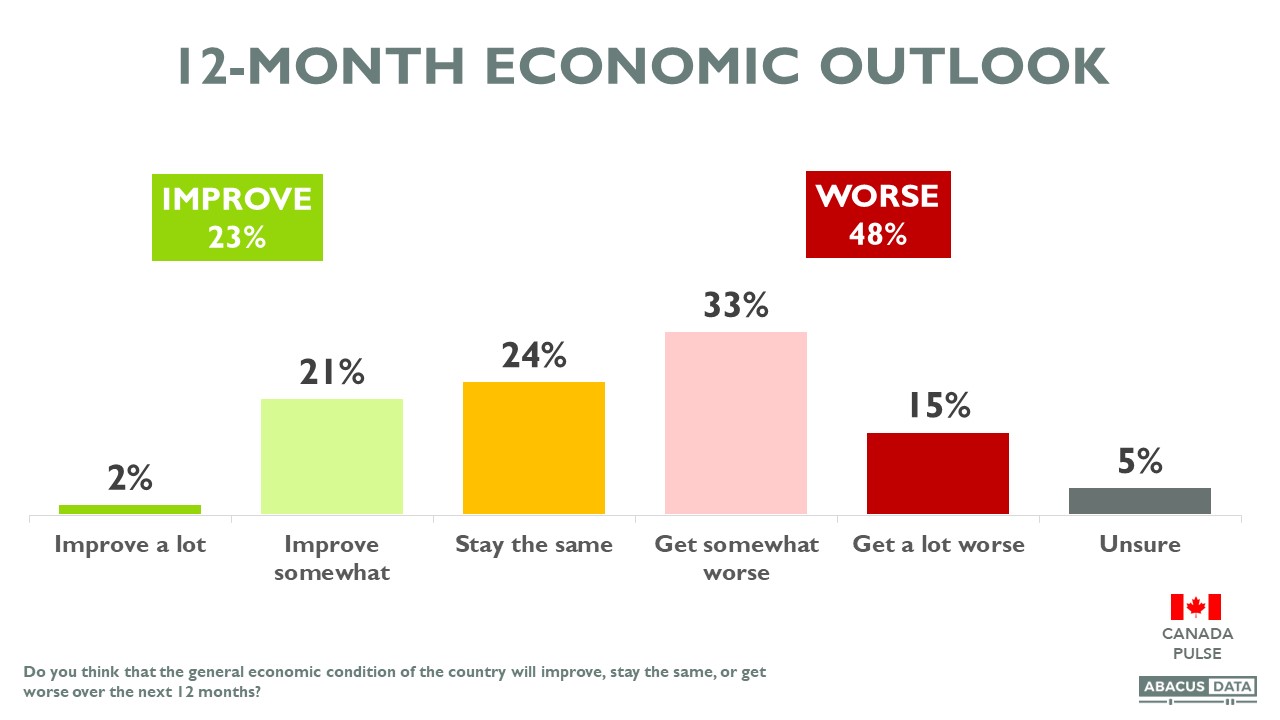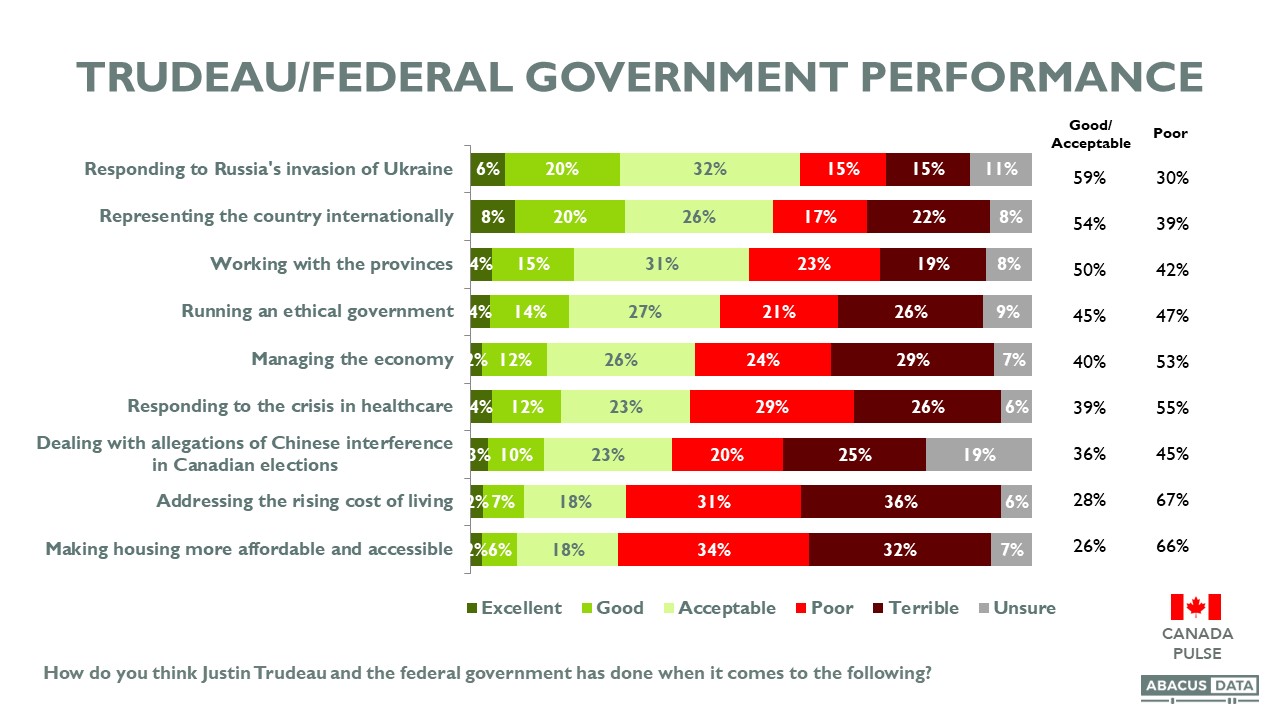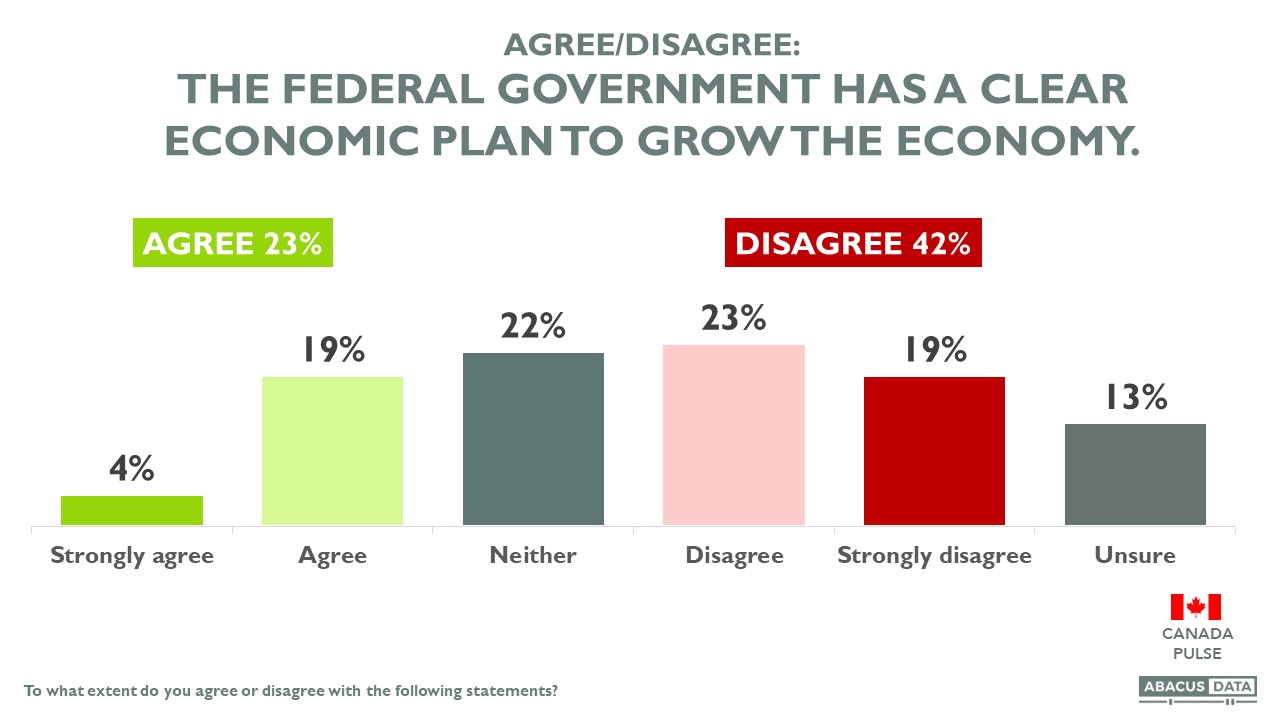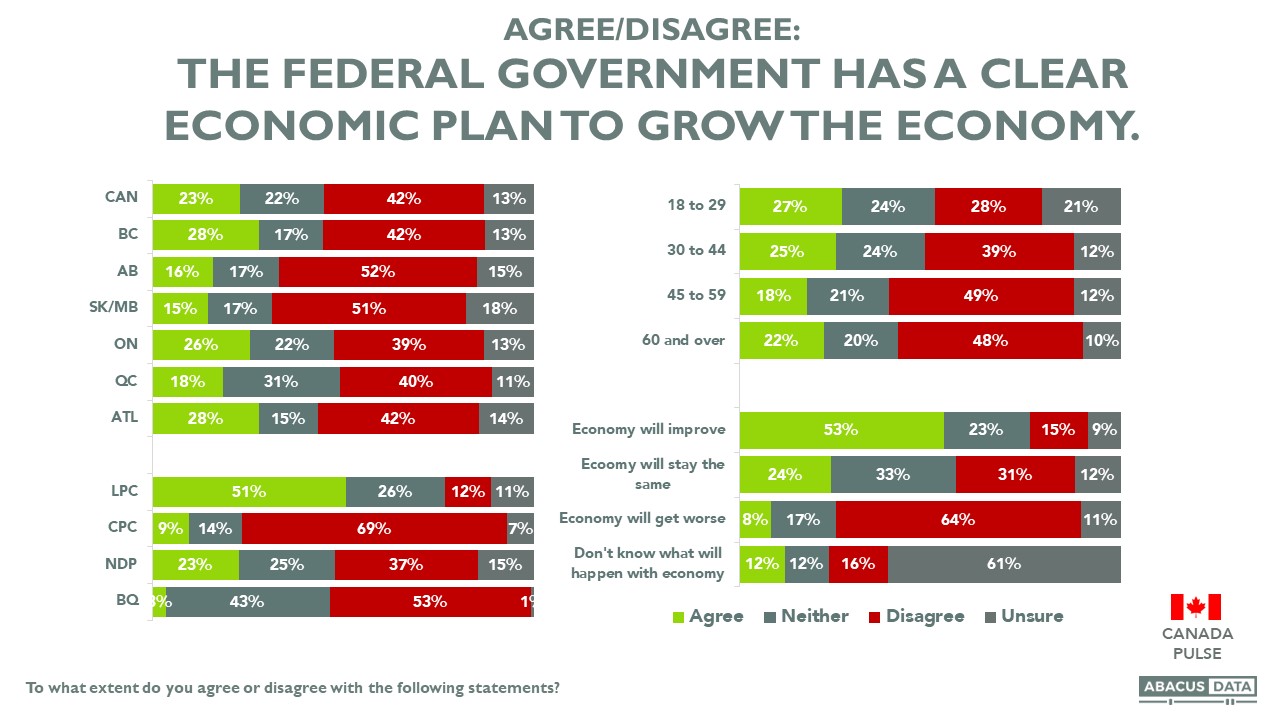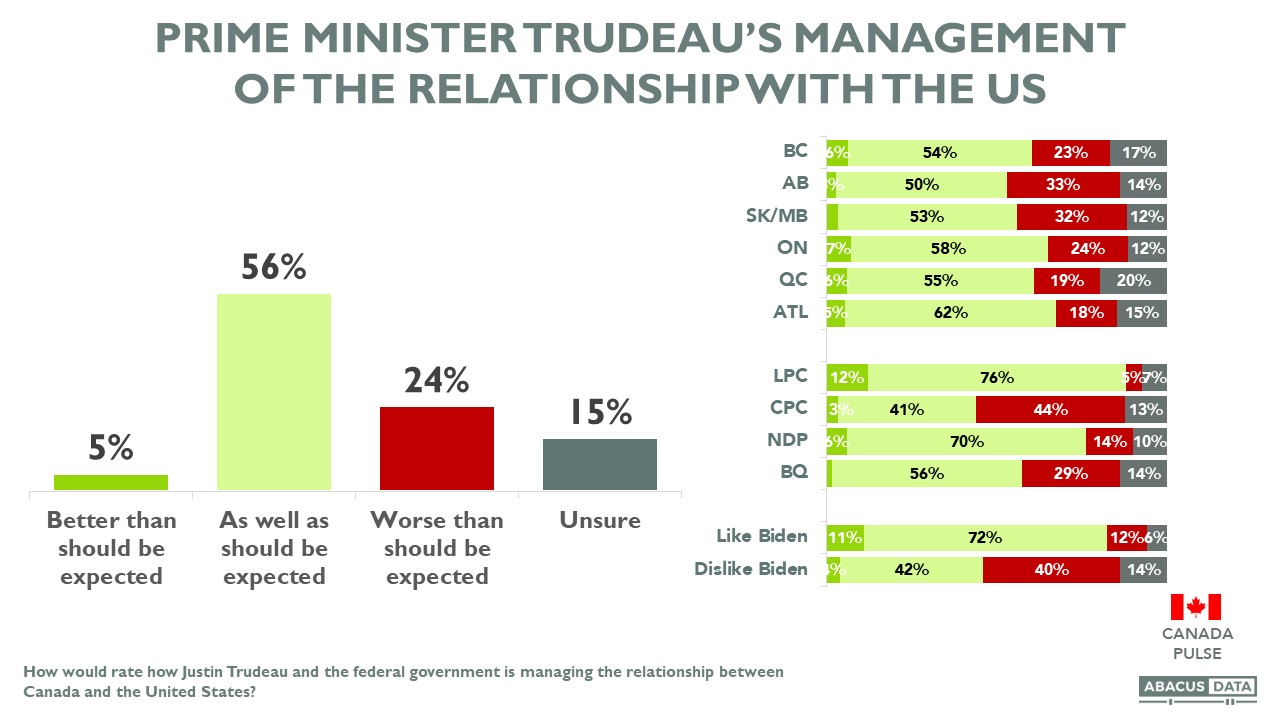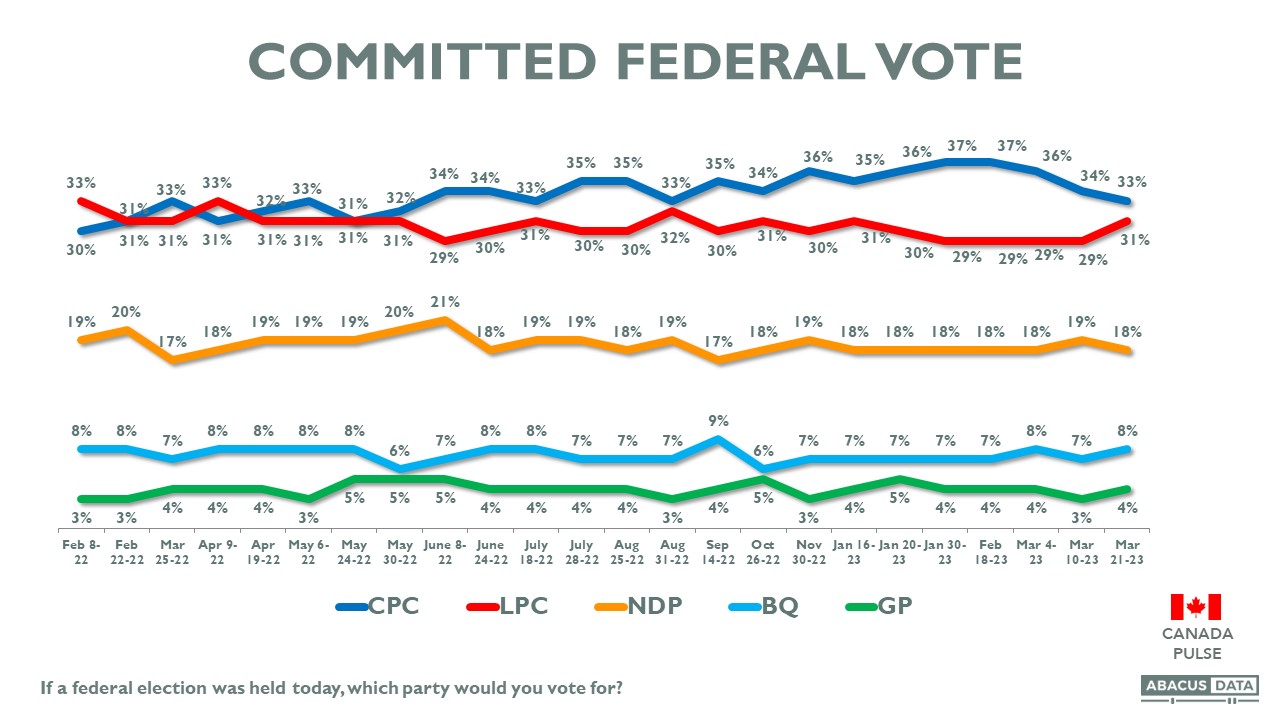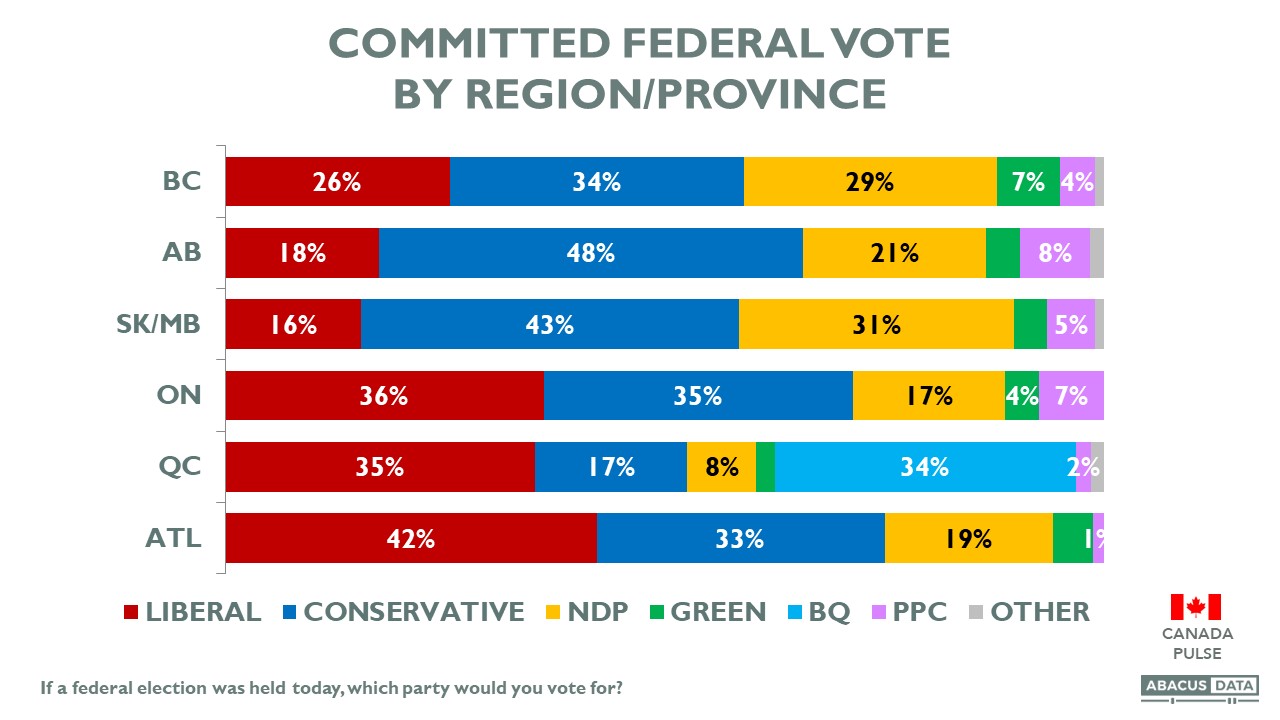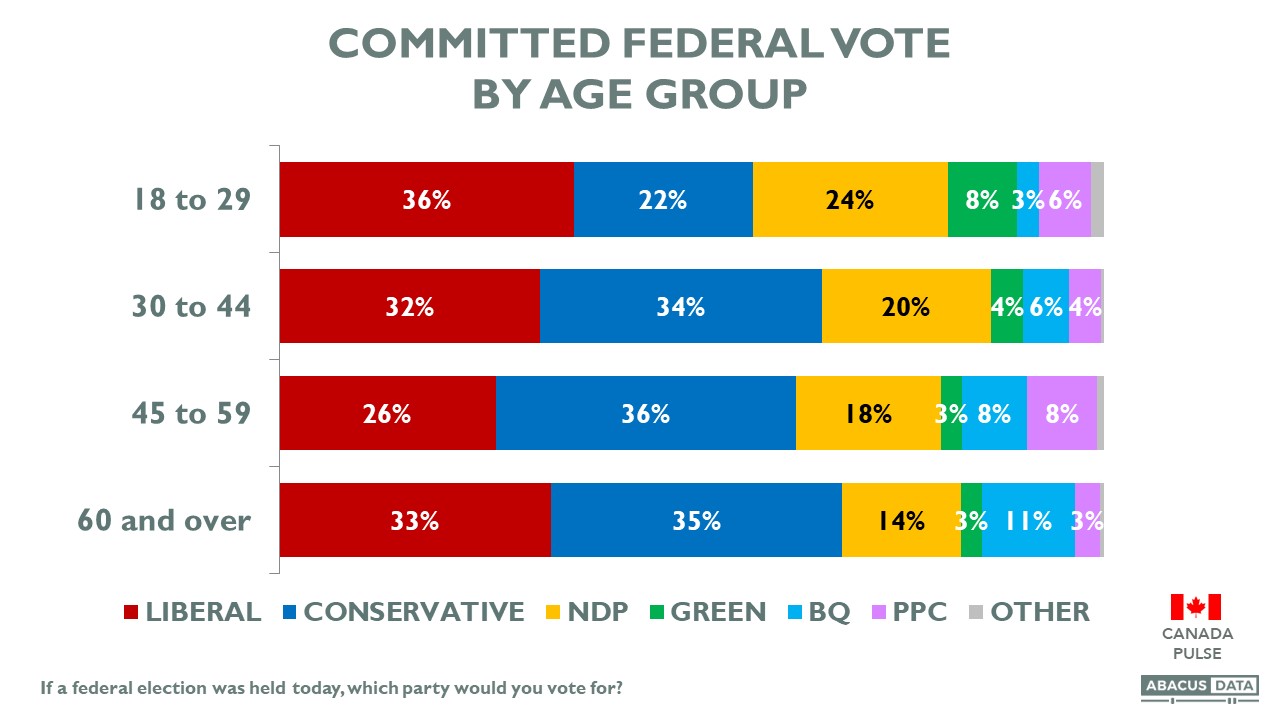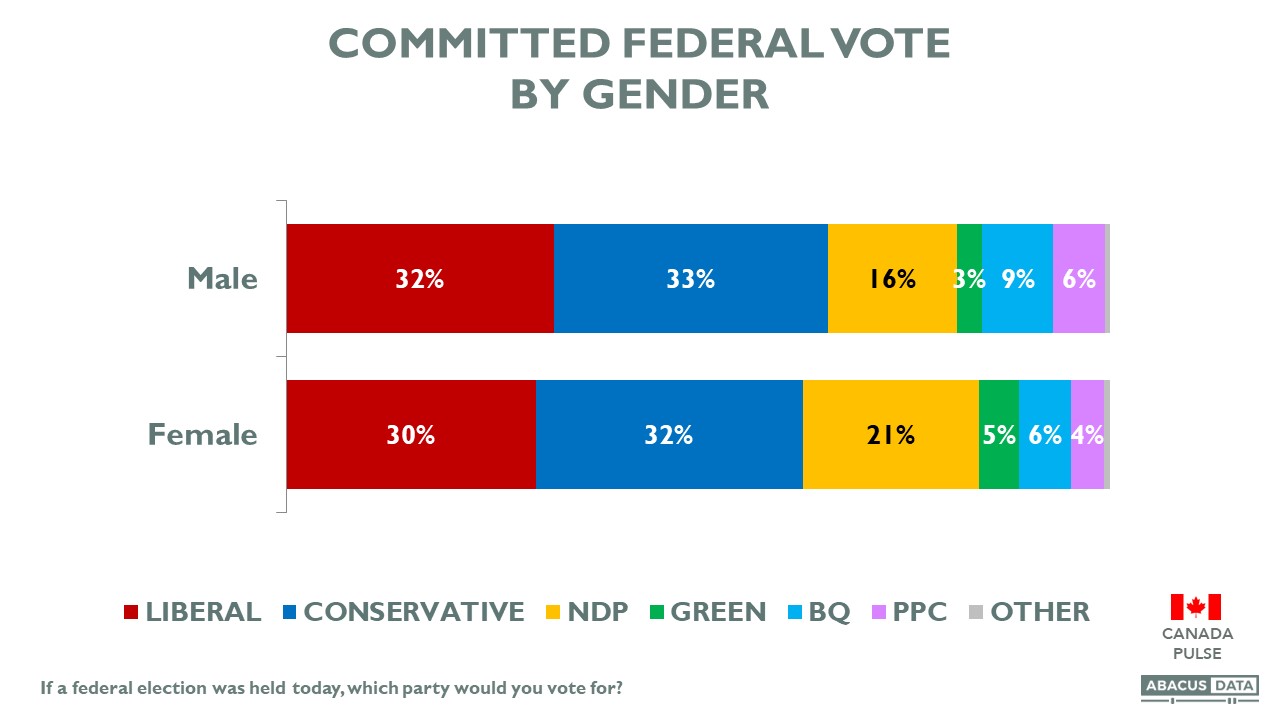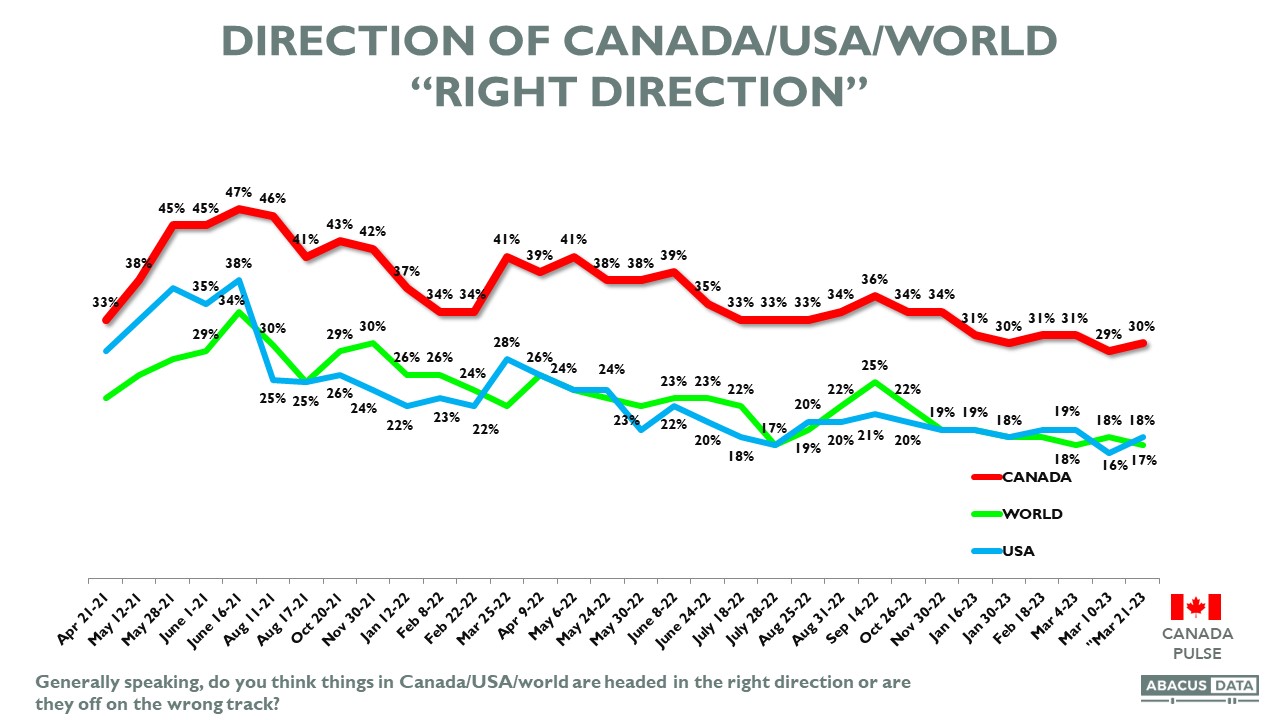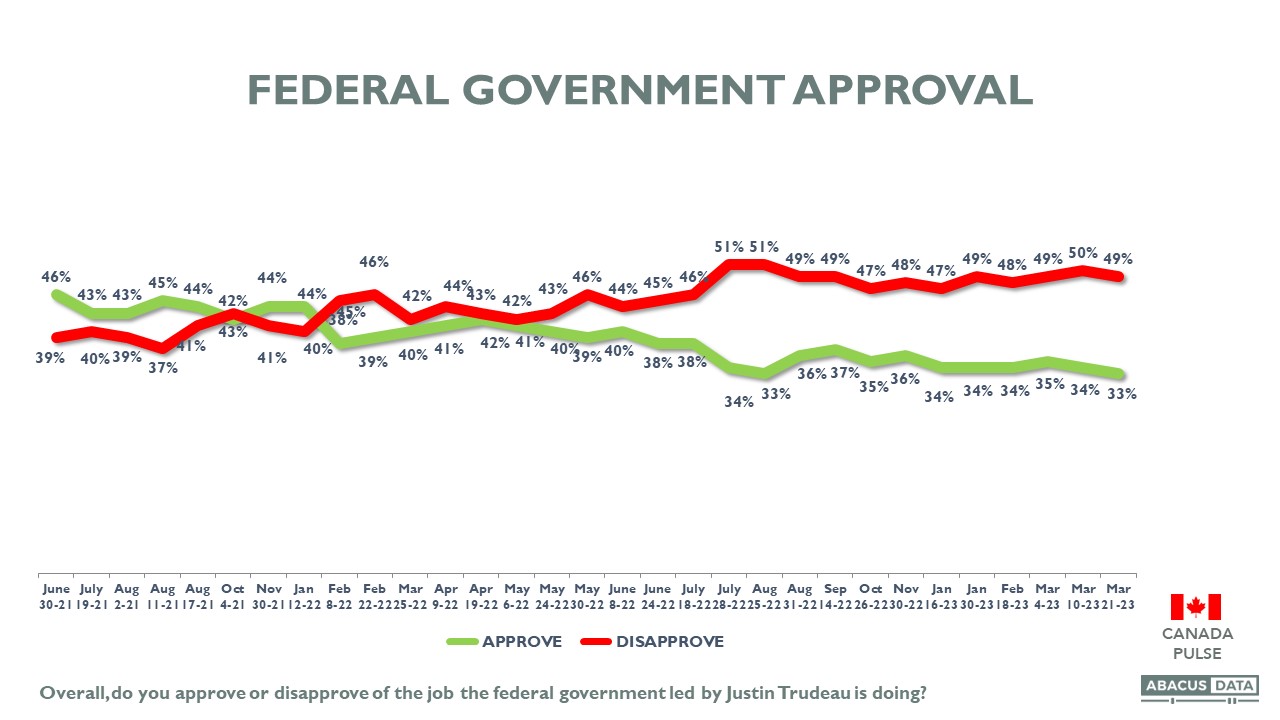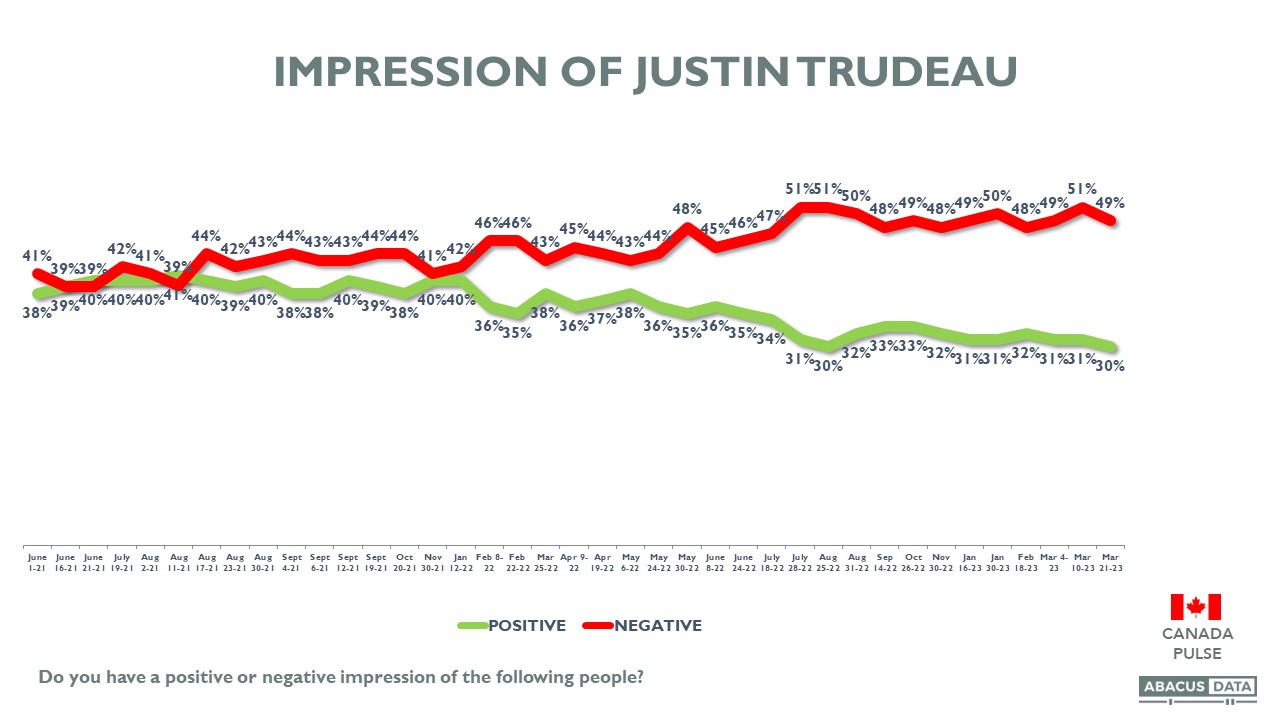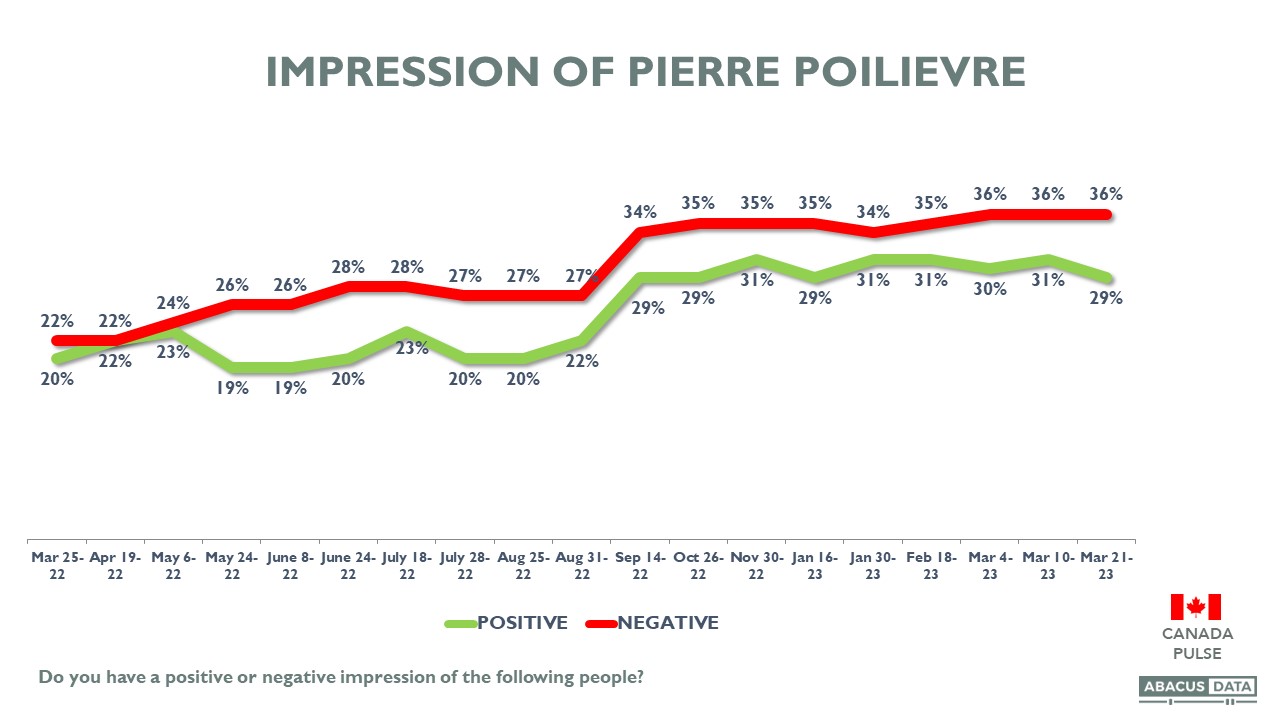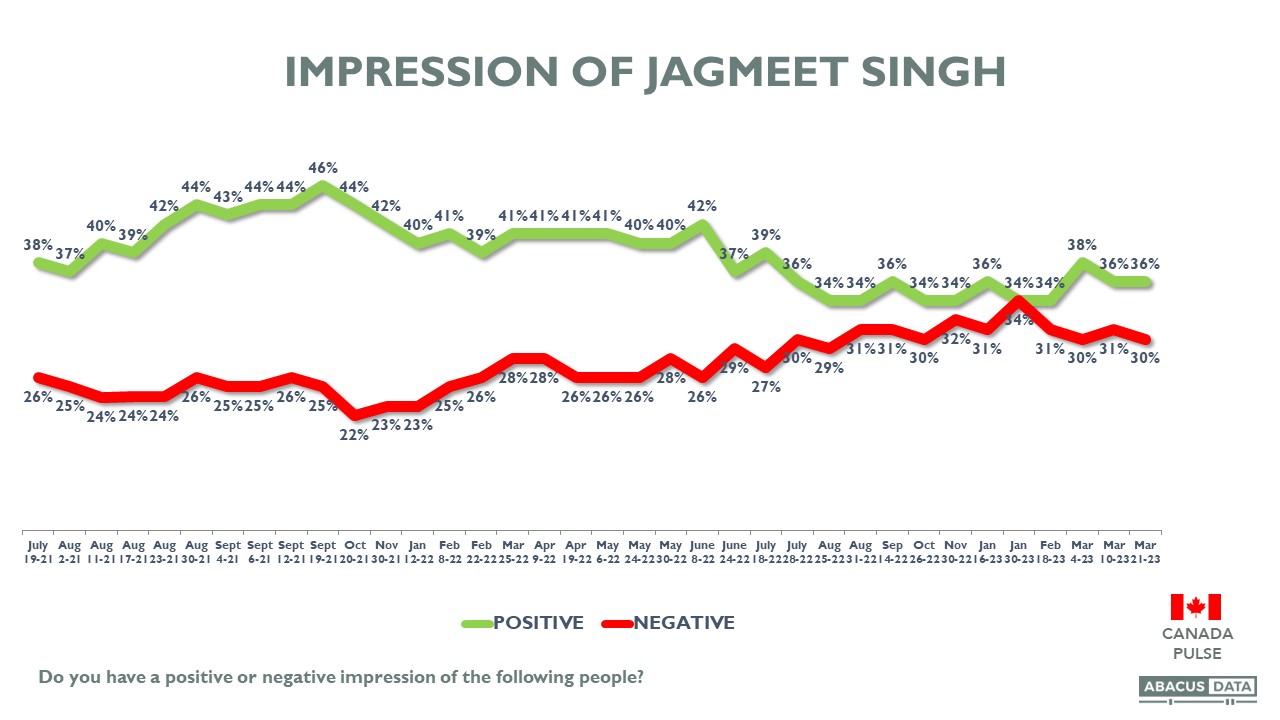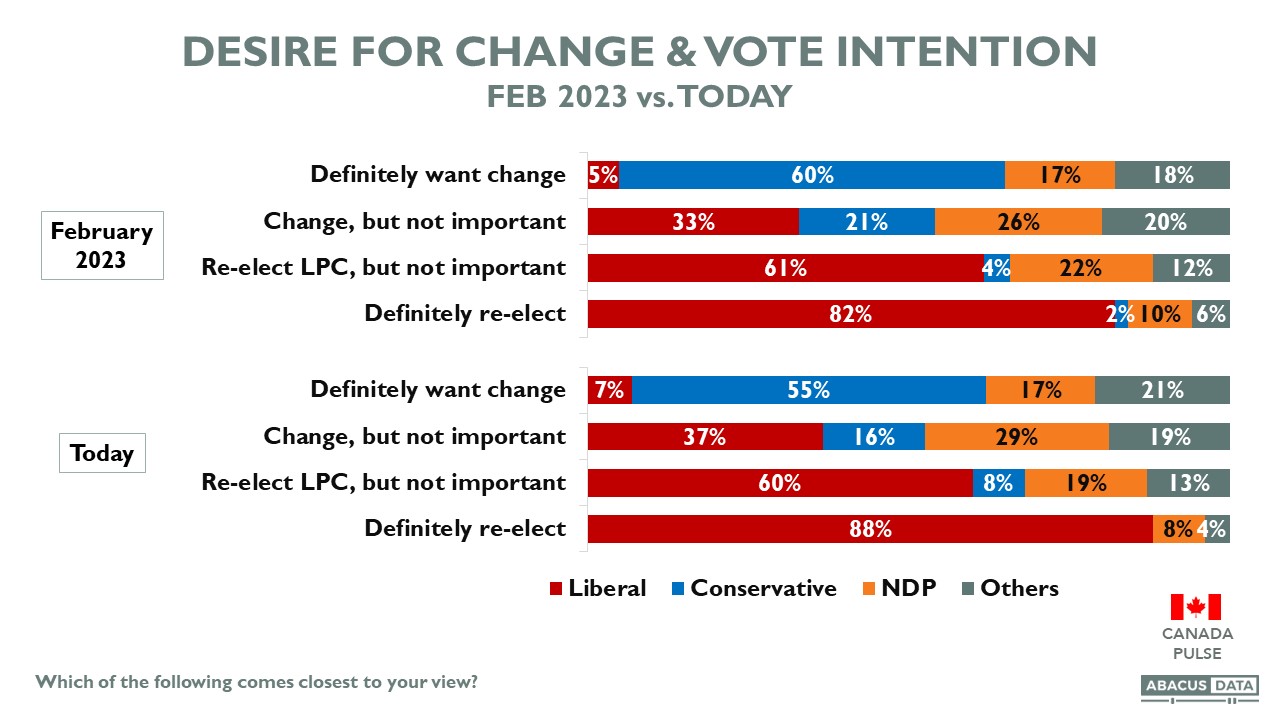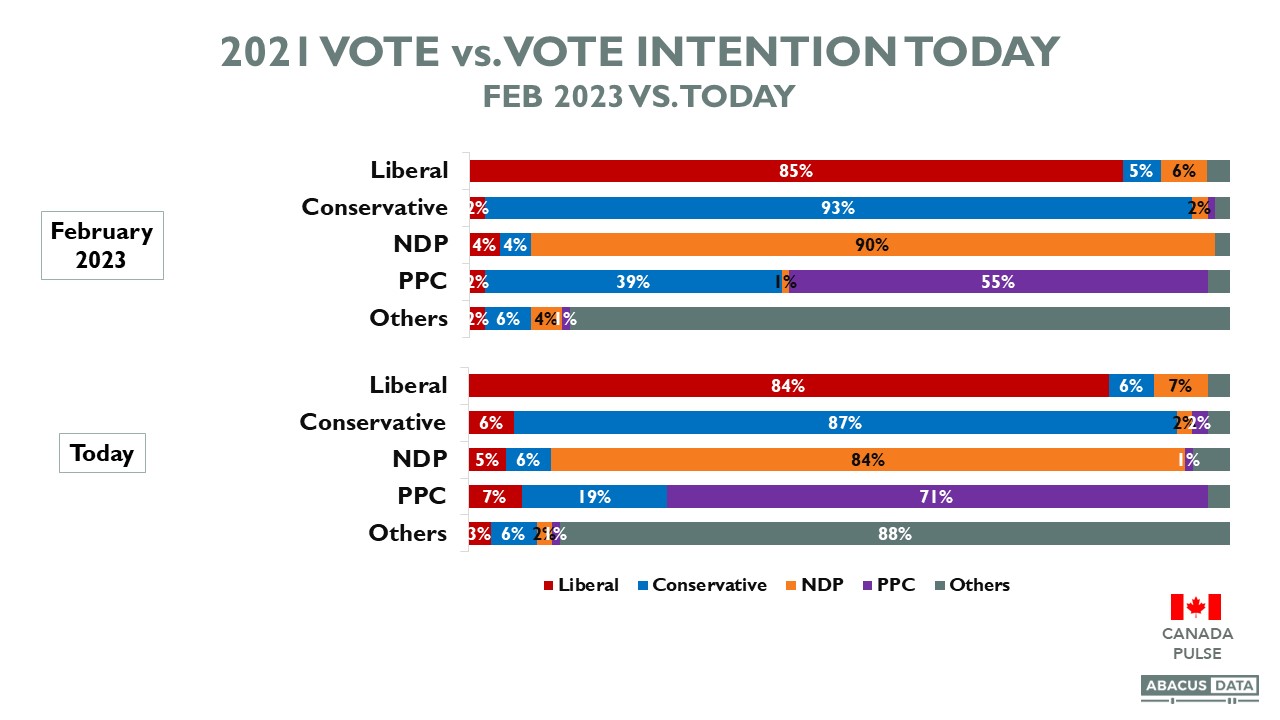Canadians & Health Care – 2023 Health system innovation, virtual care, mental health
On behalf of the CLHIA, Abacus Data and Spark Insights conducted a nationwide survey of 3000 adult Canadians. The interviewing was done online between February 17 and 23, 2023. This is #3 of a series of releases highlighting key findings from that study. More information can be sought from Susan Murray of CLHIA or Bruce Anderson bruce@sparkadvocacy.ca
PUBLIC AND NON-PUBLIC DELIVERY
Most Canadians (62%) believe a blend of public and non-public delivery of health care, provides better health care than a public only system. A minority (38%) believes that it would be better if every health service was delivered by service providers in the public sector.
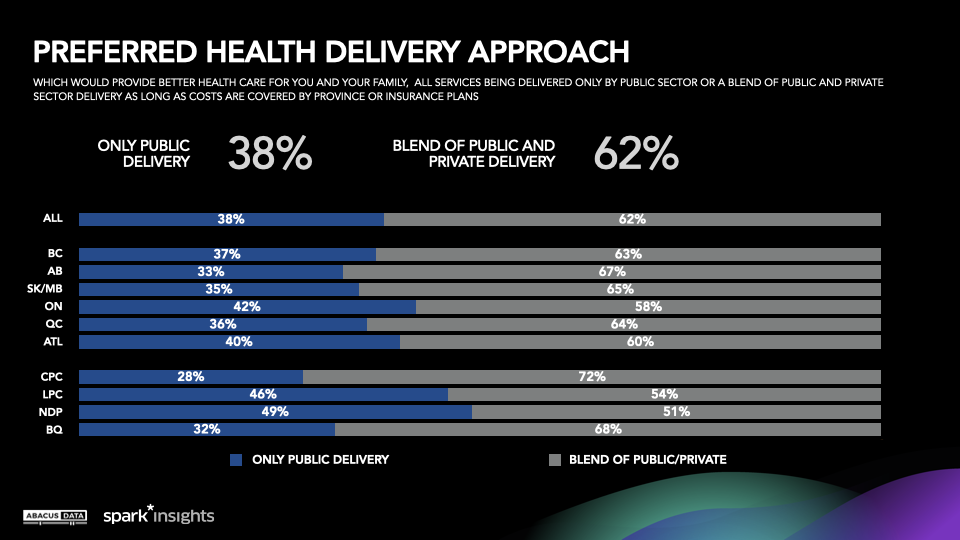
REACTION TO INNOVATIONS
Given the level of frustration evident with the health system today (see our prior releases) it is not surprising that Canadians are generally open to ideas that may represent solutions to the service performance they see.
- 95% are open to (27%) or support (68%) the idea of “establishing a modern information system where useful data is shared among health care providers across the country”.
- 93% are open to (32%) or support (62%) the idea of “government providing a tax credit for smaller and medium businesses that offer employer health benefits for employees to help cover costs of eyecare, dental care, physiotherapy and mental health services”
- 87% are open to (30%) or support (57%) the idea of “allowing more private clinics to offer medical services provided the services are covered either by government or by the patient’s employer or group insurance plan”. (We found no significant difference when we tested the idea with either government as the source of coverage versus government or group insurance plans.)
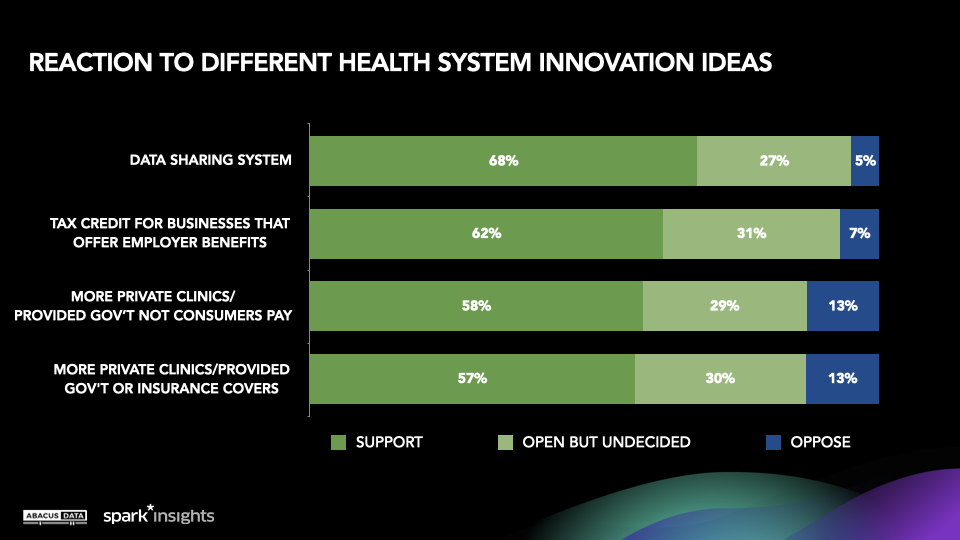
VIRTUAL CARE
- A majority (55%) of Canadians have used virtual care, described as “consulting medical professionals online or over the phone to get the advice and information they need.” A third have used virtual care more than once, and 10% have used it more than 3 times.
- 32% rated their virtual care experience as very good, up from 21% last year. Another 57% say it was satisfactory, and only 11% said it was unsatisfactory. For 90% of those who used virtual care, costs were covered either by provincial or other insurance coverage.
- Speed in getting an appointment and advice is seen as the biggest perceived benefit of virtual care, but most people see other benefits too, including not having to spend the time and cost to travel to an office or clinic, not having to be in a venue where there are other people who might be sick, and getting advice when a family doctor is not an option.
- In the future, 30% of those surveyed say they would prefer to consult with a doctor using virtual health care, while 70% would prefer personal appointments. A large majority (82%) would like their provincial government to encourage more use of virtual care.
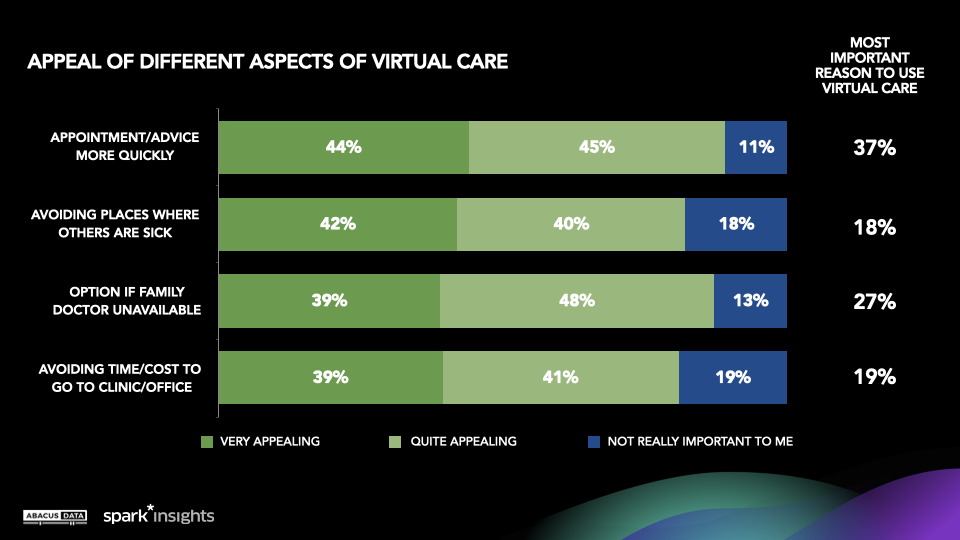
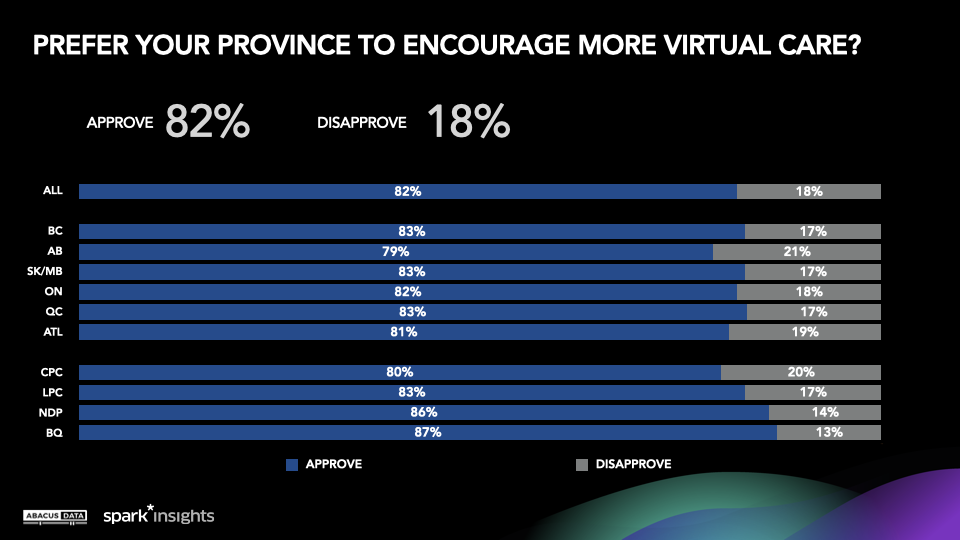
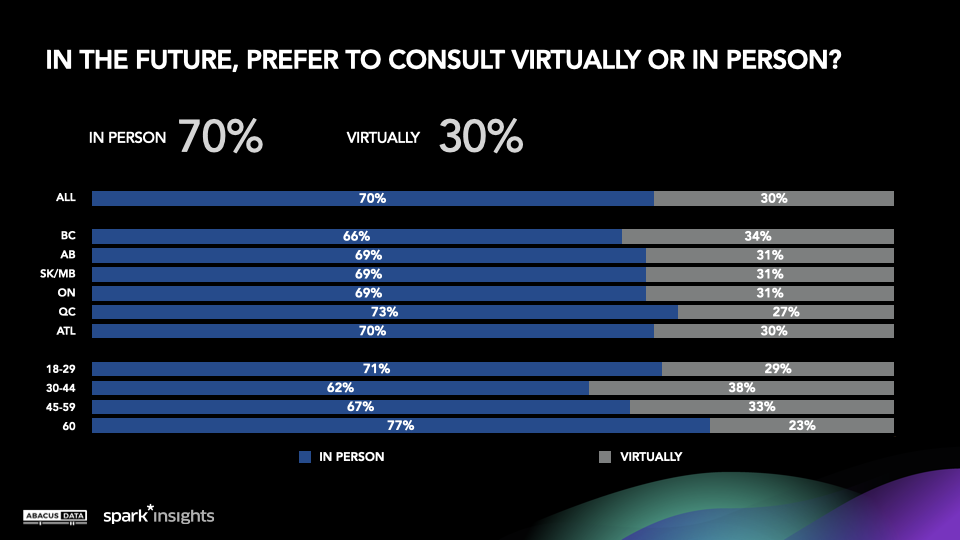
MENTAL HEALTH
- Most Canadians (56%) say that the health care system is falling short of meeting their needs when it comes to the availability of mental health services. This view is up sharply from the 39% measured in 2021. Among people under 30, mental health services is one of the most poorly rated areas of health system performance.
- Just over one in ten people (12%) access mental health services regularly and another third (32%) say they do from time to time. The average age of someone who regularly accesses mental health services is 37.5. The average age of someone who never accesses these services is 55. Of those who regularly access mental health services, 72% are under 45 years old.
- A total of 31% say that it is difficult to get appointments with their therapist (16%) or impossible to find a psychiatrist or therapist (15%). This problem is especially acute among younger people. Among those who say it is difficult to get appointments with their therapist, 76% are under 45. Among those who can’t find a therapist, 68% are under 45.
- 90% say that employer or group insurance plans that help people with the costs of mental health services are a positive in Canada, including 39% who say “strong positive”.
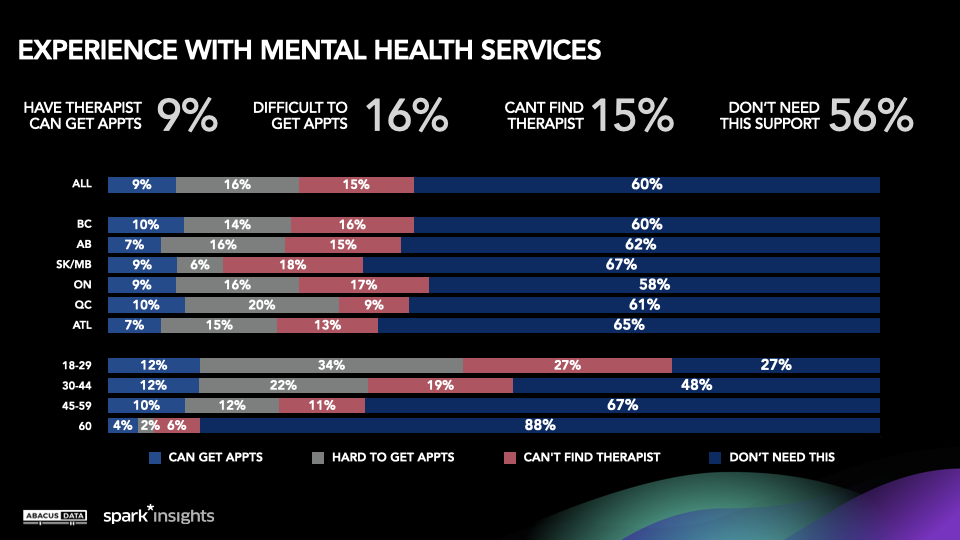
SUMMARY
Canadians are broadly interested in innovations that can improve their access to health services and do it in affordable ways. Many support tax incentives to expand take-up of group insurance plans, and are open to expanded use of non-public clinics and service providers, where the cost of these services are covered by public or group insurance, and not paid for out of pocket by the consumer.
With respect to virtual care, the pandemic created opportunities for a lot more people to experience this innovation and the response has been broadly positive – to the point that almost a third of consumers would prefer their first step to be a virtual one in the future.
Finally, evidence of growing demand for mental health services has been clear in recent years and is especially notable among younger people. There is a significant gap between that rising demand and the availability of mental health services.
METHODOLOGY
The survey was conducted with 1,500 Canadian residents from February 17th to 23rd, 2023. A random sample of panelists were invited to complete the survey from a set of partner panels based on the Lucid exchange platform. These partners are typically double opt-in survey panels, blended to manage out potential skews in the data from a single source.
The margin of error for a comparable probability-based random sample of the same size is +/- 2.53%, 19 times out of 20.
The data was weighted according to census data to ensure that the sample matched Canada’s population according to age, gender, and region. Totals may not add up to 100 due to rounding.
ABOUT DAVID COLETTO
David Coletto is Chair, CEO and a founding partner of Abacus Data a full-service market research and strategy firm based in Ottawa and Toronto. With over a decade and a half of experience in the industry, David and his partners founded Abacus 12 years ago and since then David has become one of Canada’s most respected social researchers regularly commenting on politics, the labour market, and consumer behaviour.
He earned a PhD in Political Science from the University of Calgary in 2010 and is an adjunct professor at Carleton University. He is the host and producer of inFocus with David Coletto a podcast that explores the intersection of public opinion, politics, public policy, and consumer behaviour.
ABOUT ABACUS DATA
We are the only research and strategy firm that helps organizations respond to the disruptive risks and opportunities in a world where demographics and technology are changing more quickly than ever.
We are an innovative, fast-growing public opinion and marketing research consultancy. We use the latest technology, sound science, and deep experience to generate top-flight research-based advice to our clients. We offer global research capacity with a strong focus on customer service, attention to detail, and exceptional value.
We were one of the most accurate pollsters conducting research during the 2021 Canadian election following up on our outstanding record in 2019.
Contact us with any questions.
Find out more about how we can help your organization by downloading our corporate profile and service offering.
